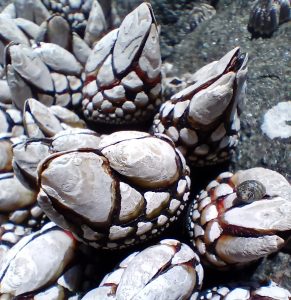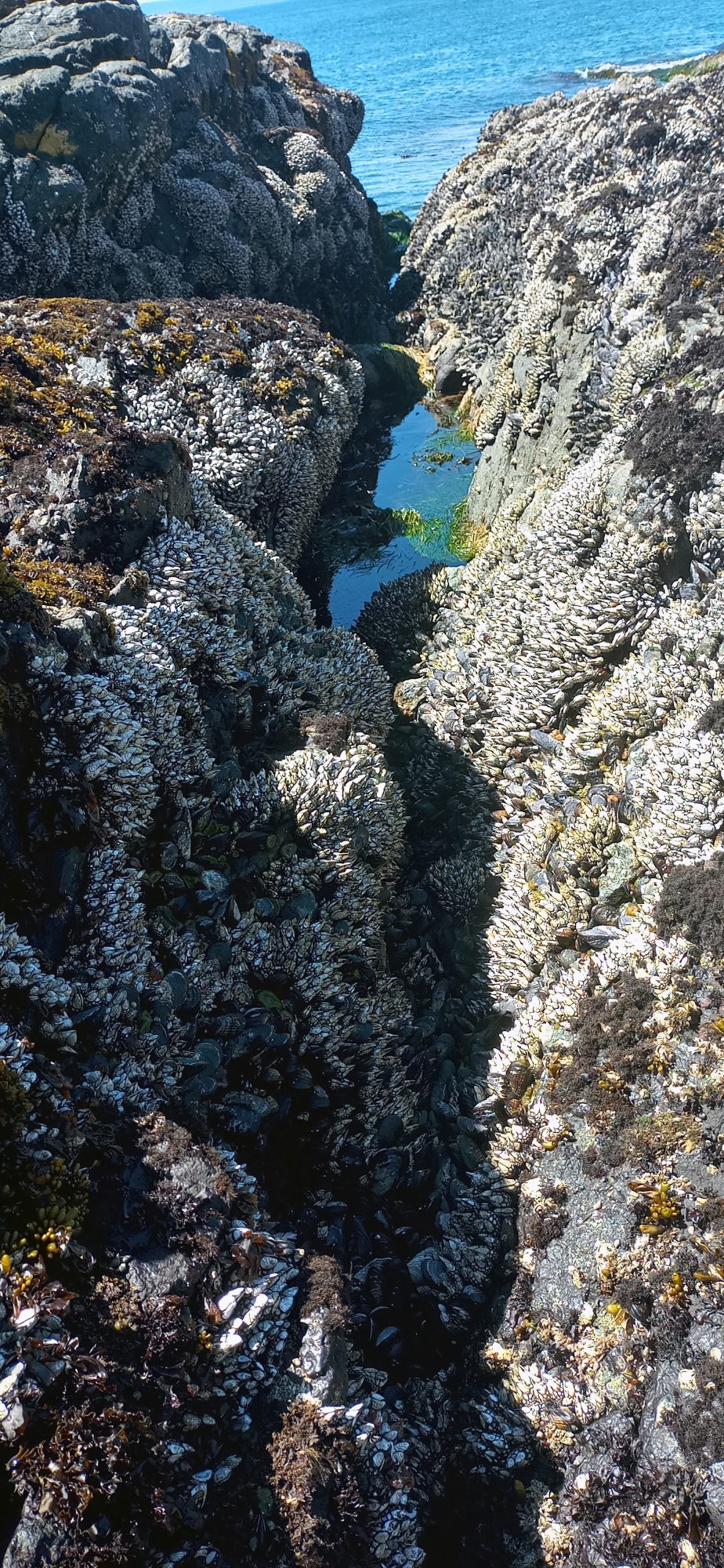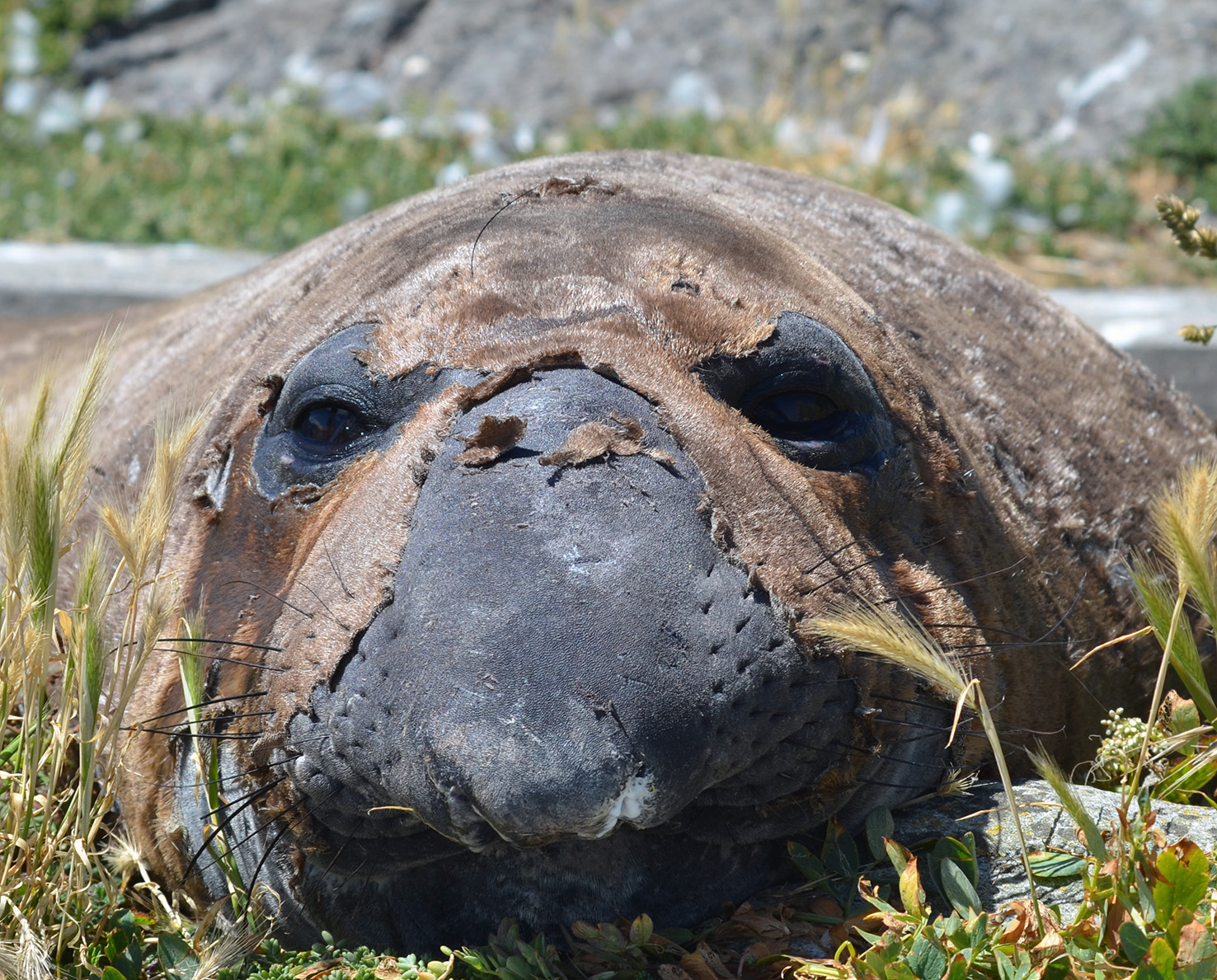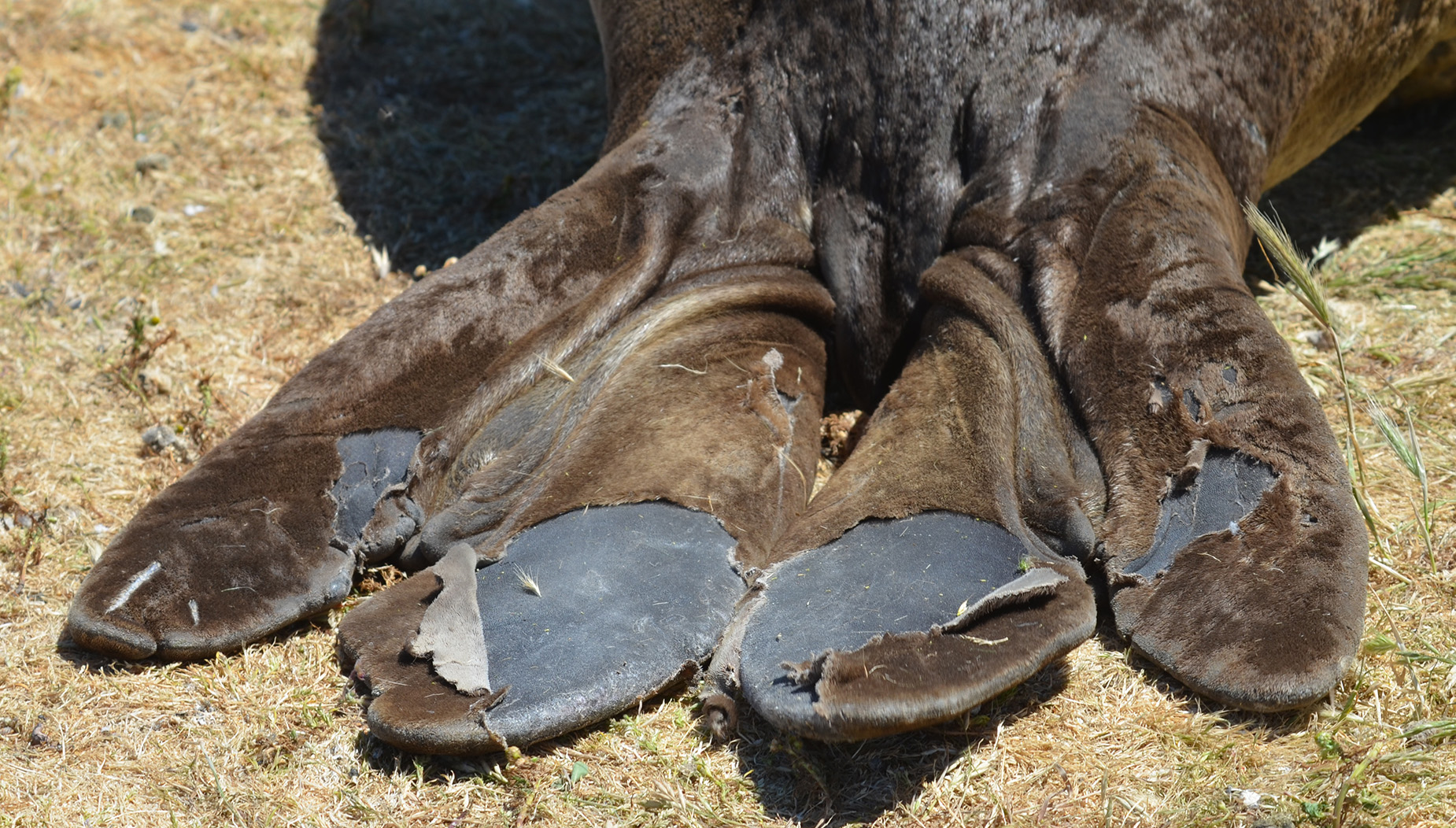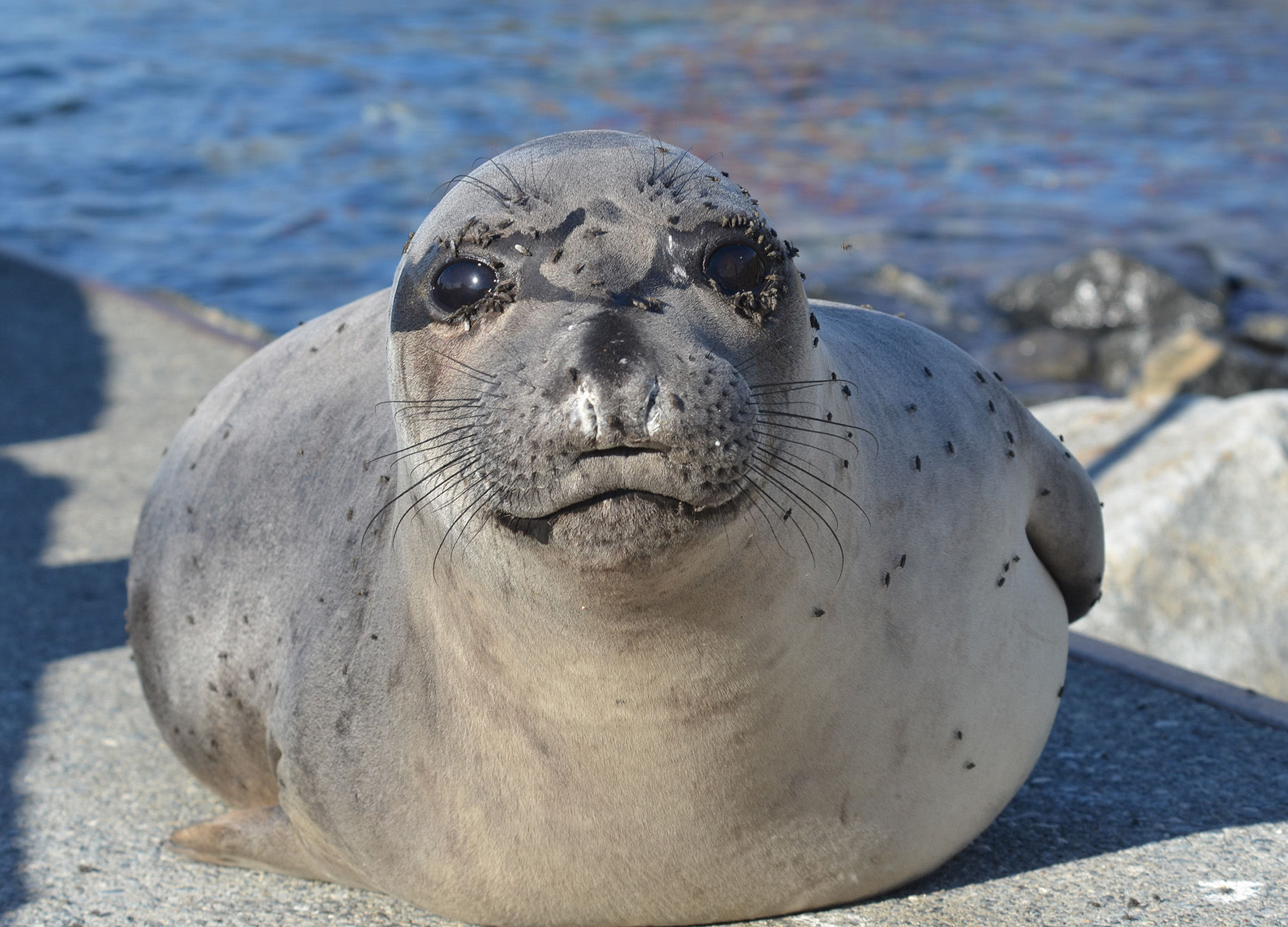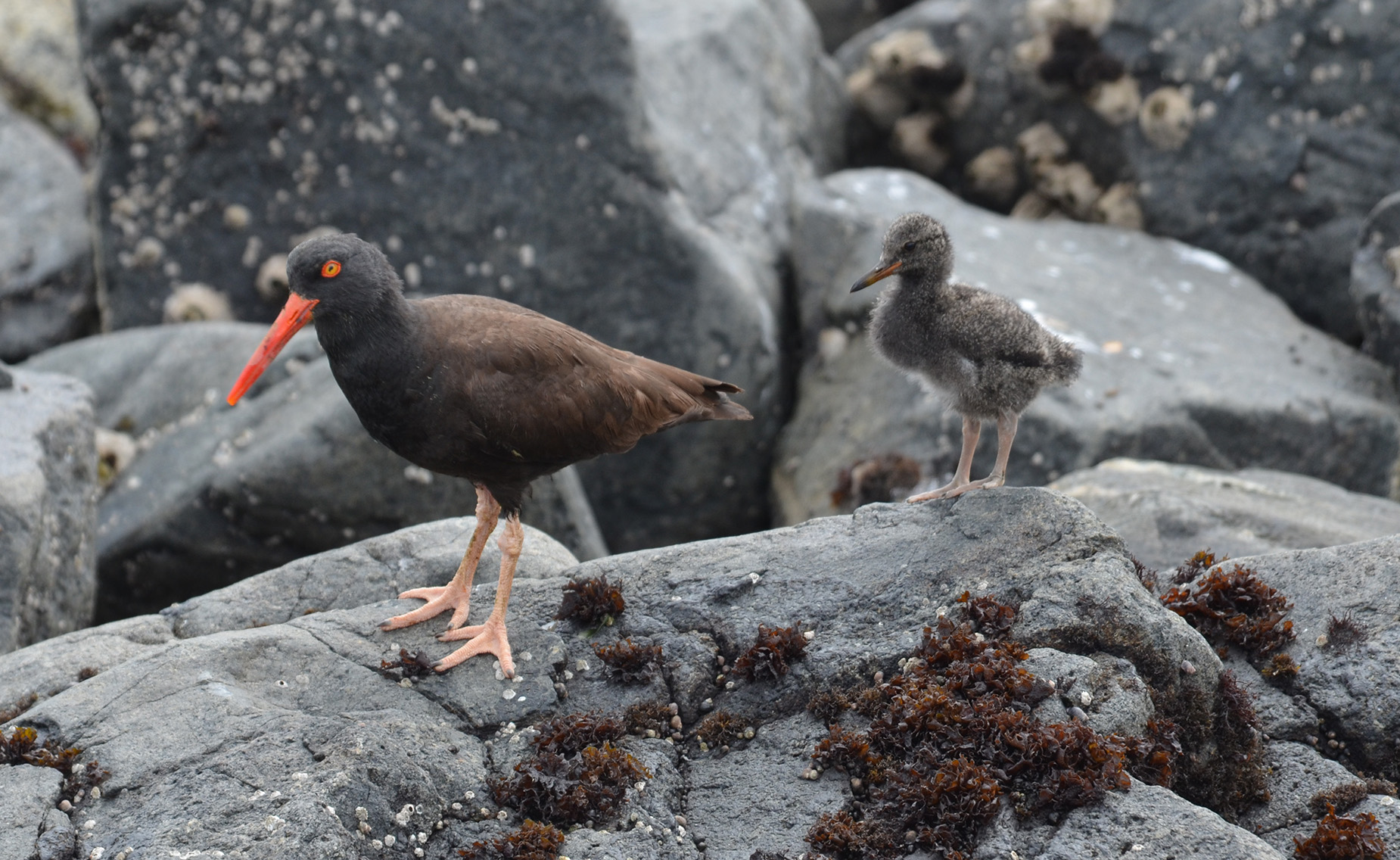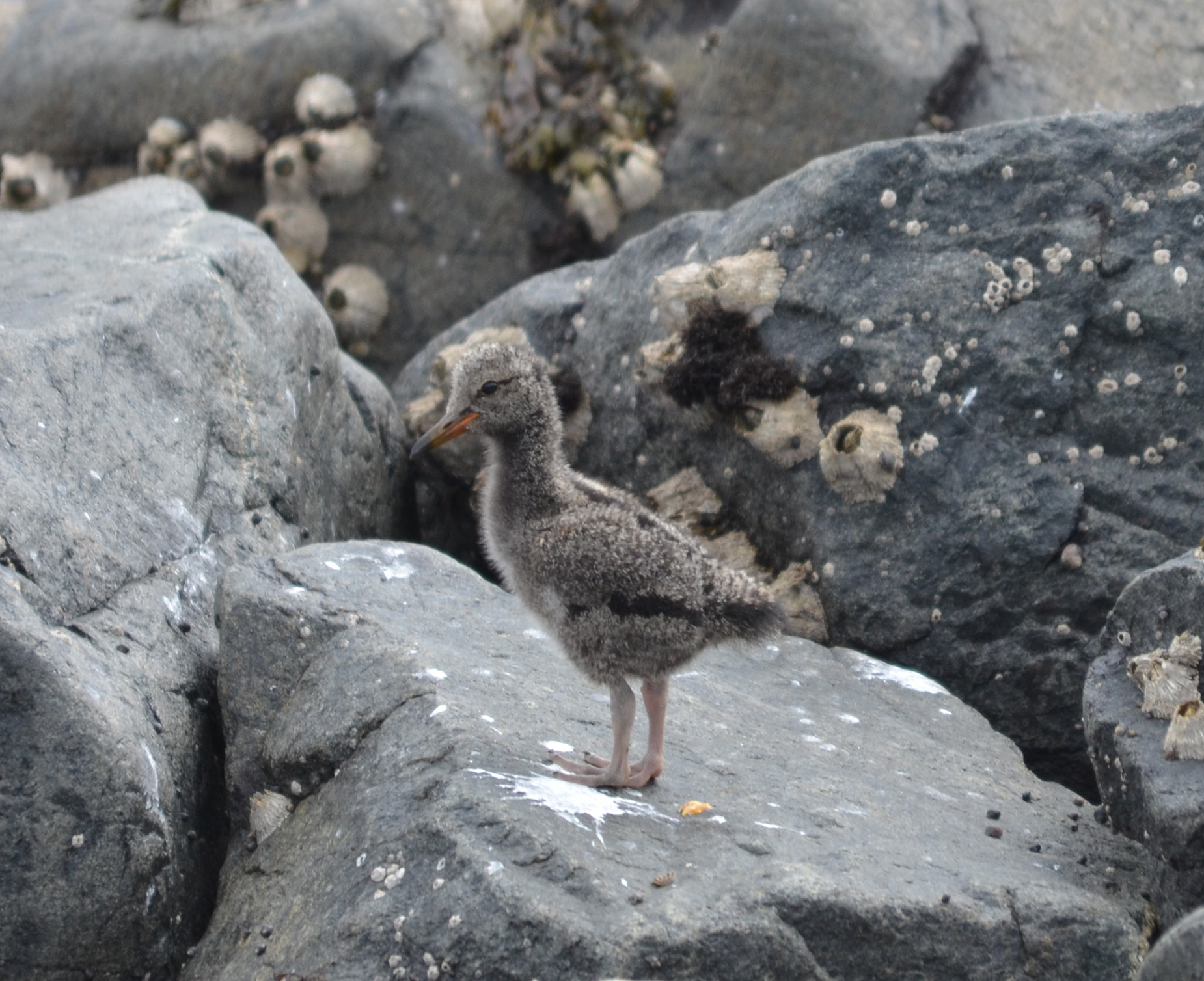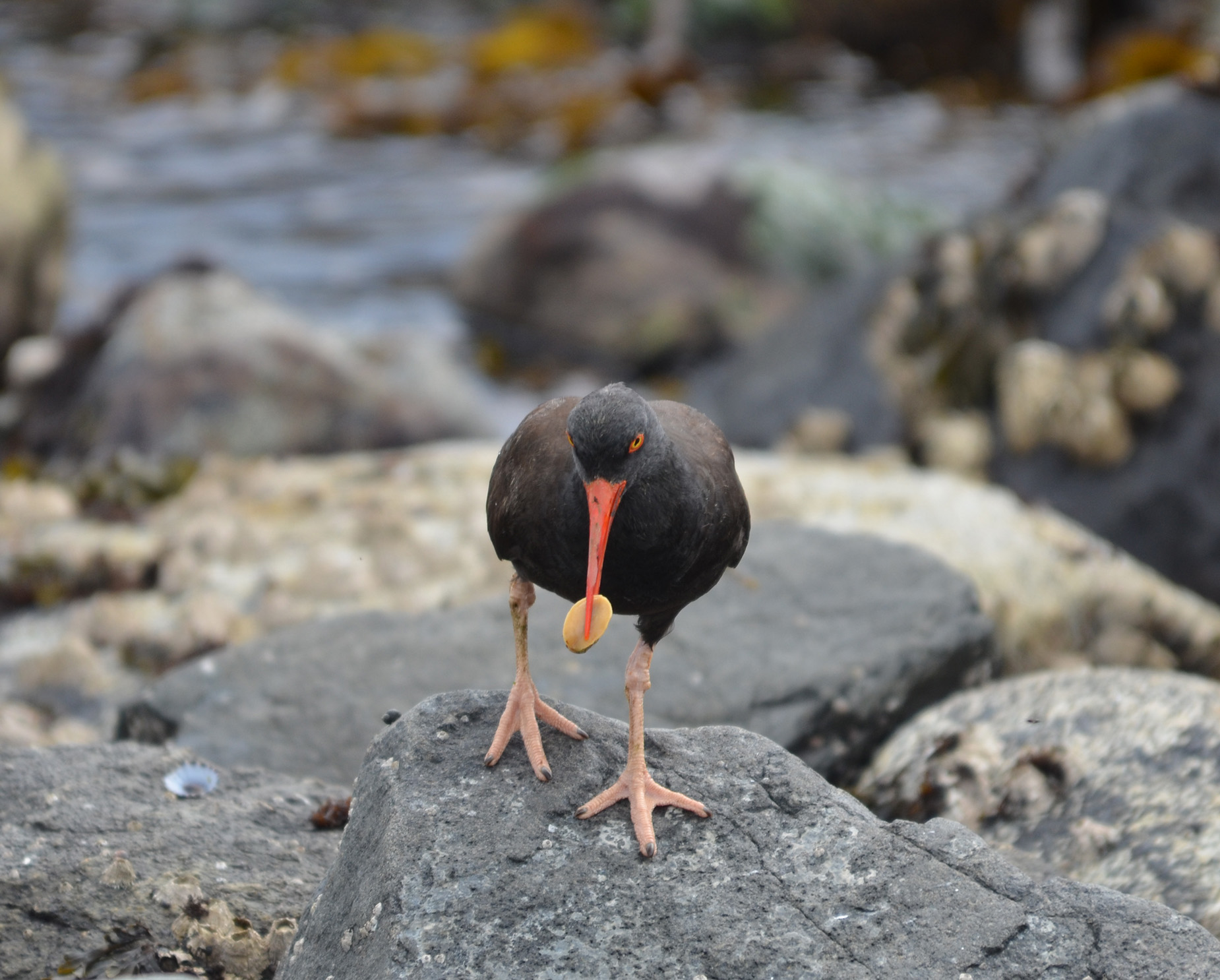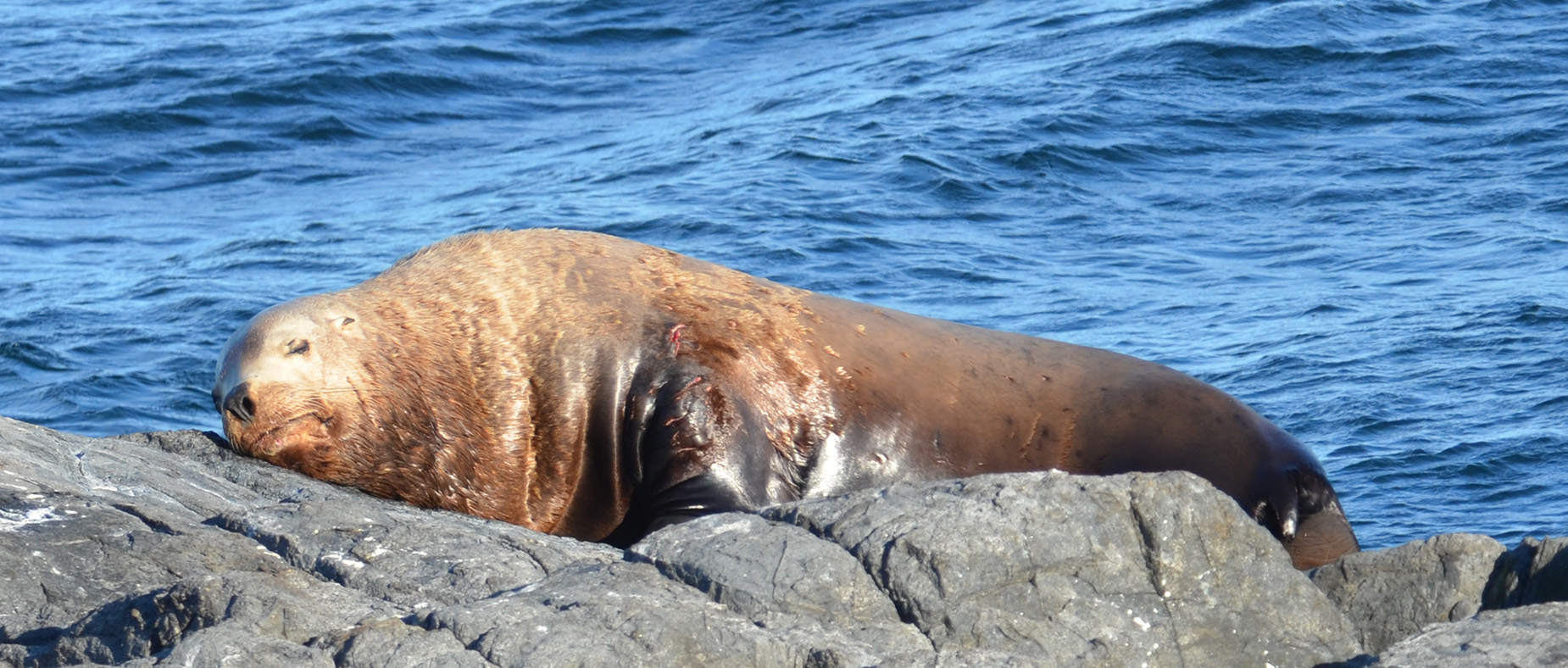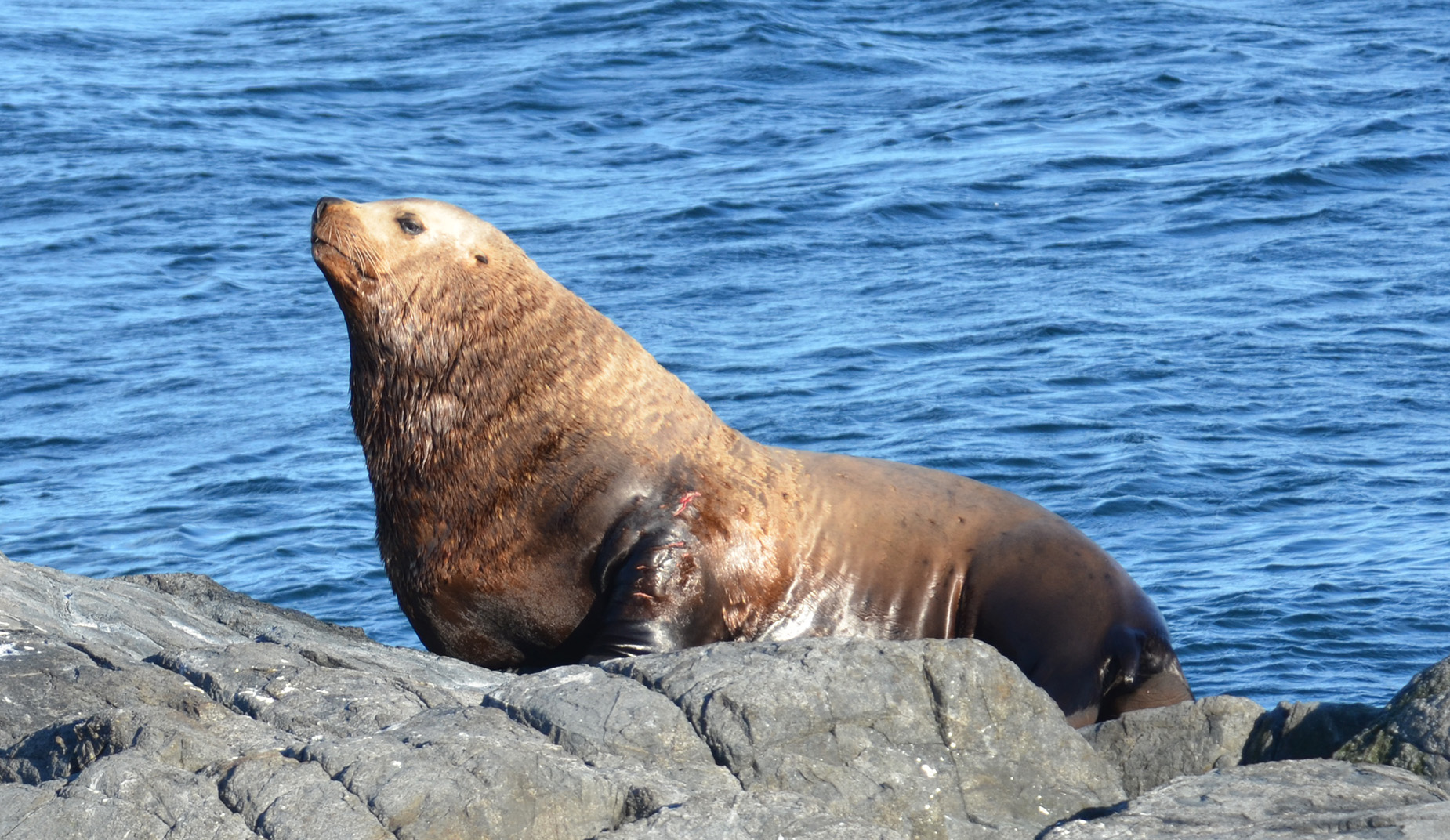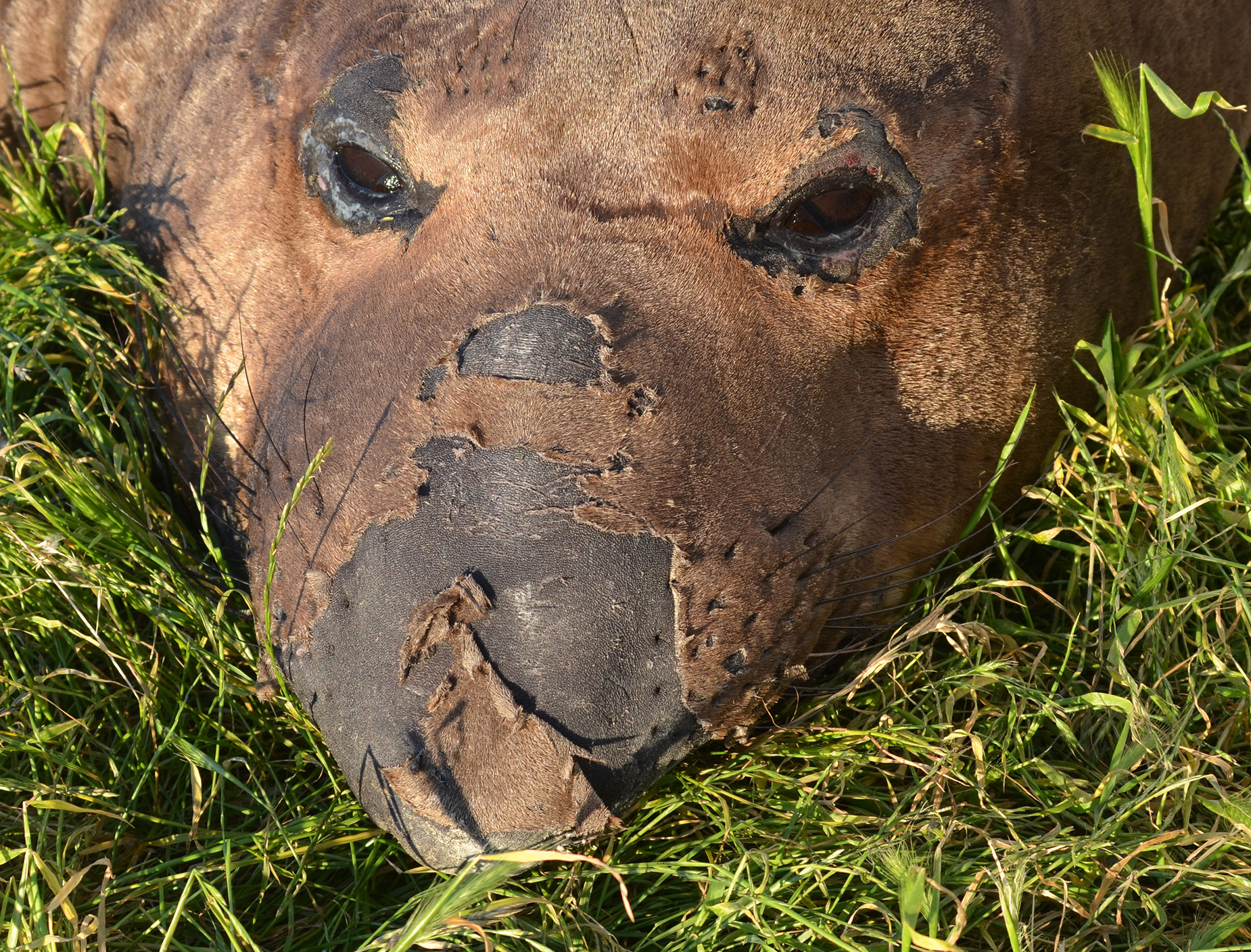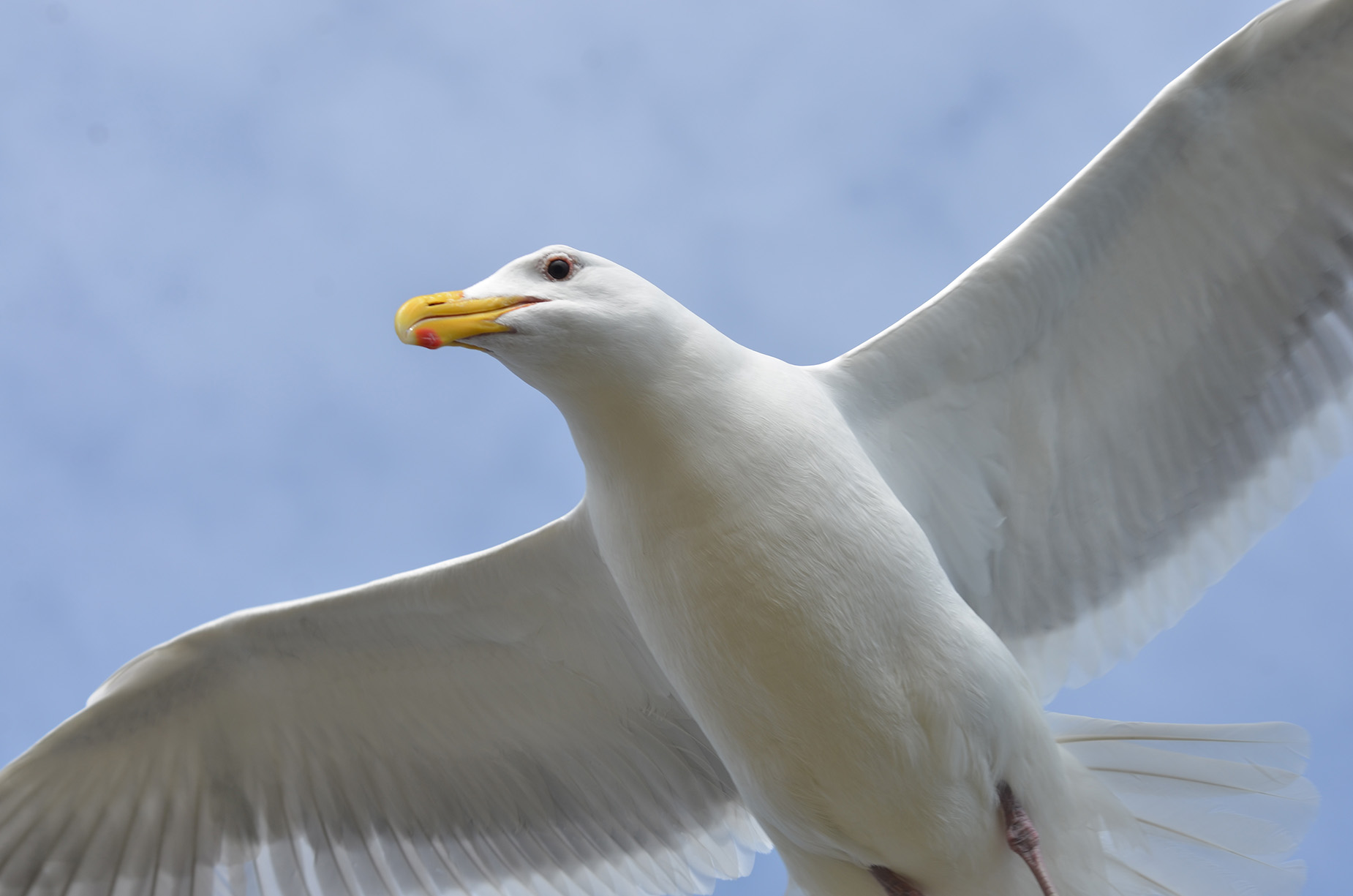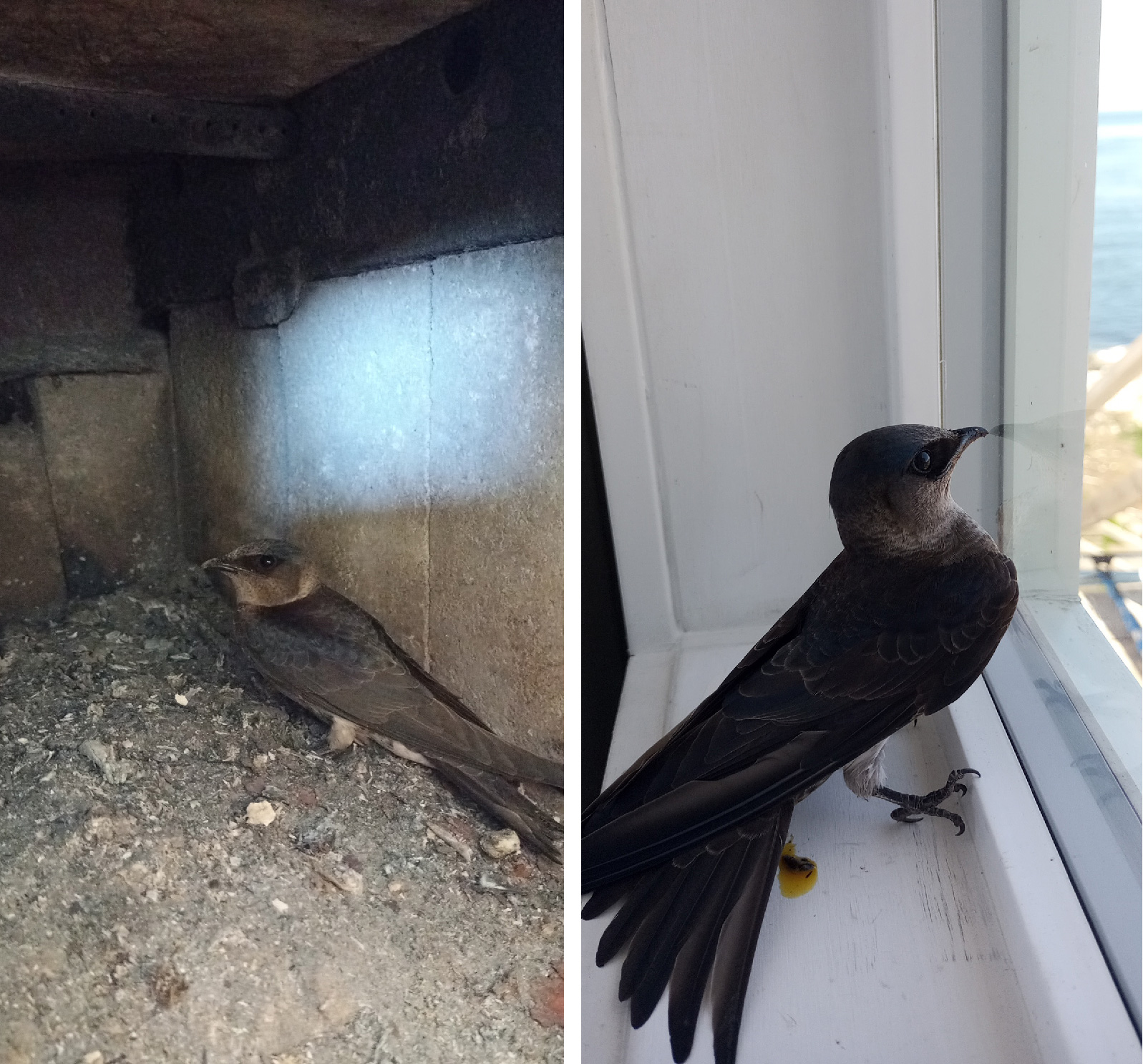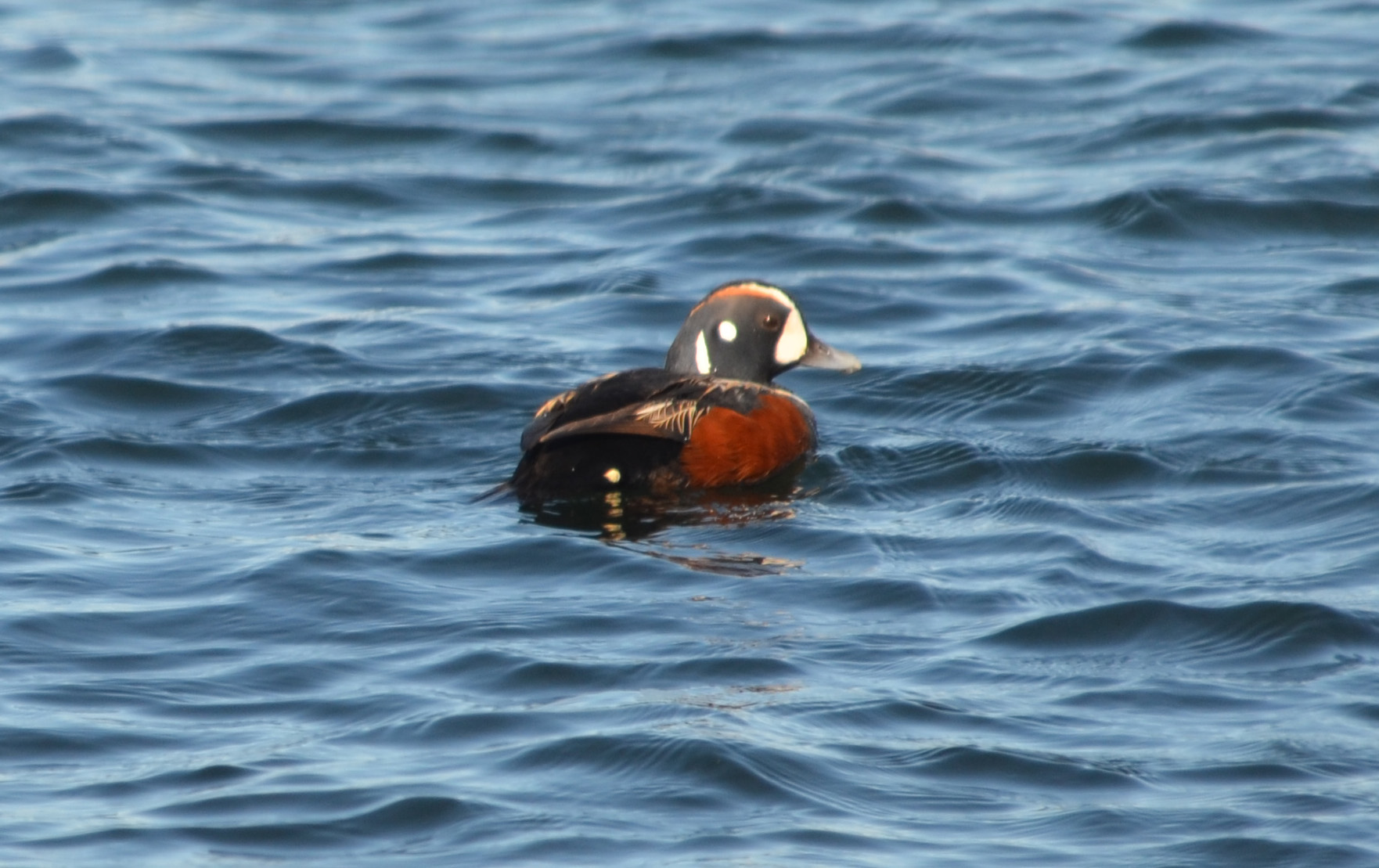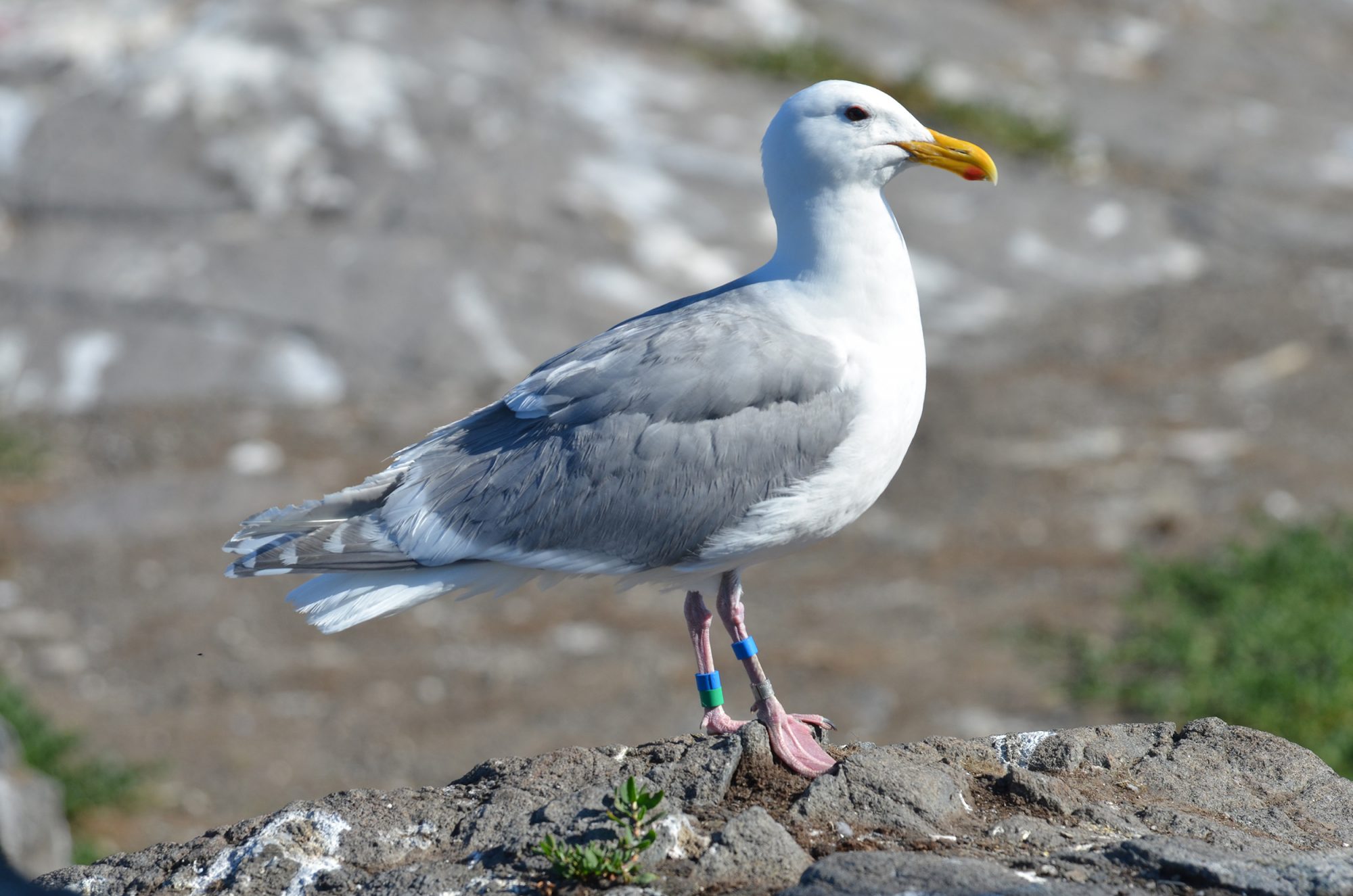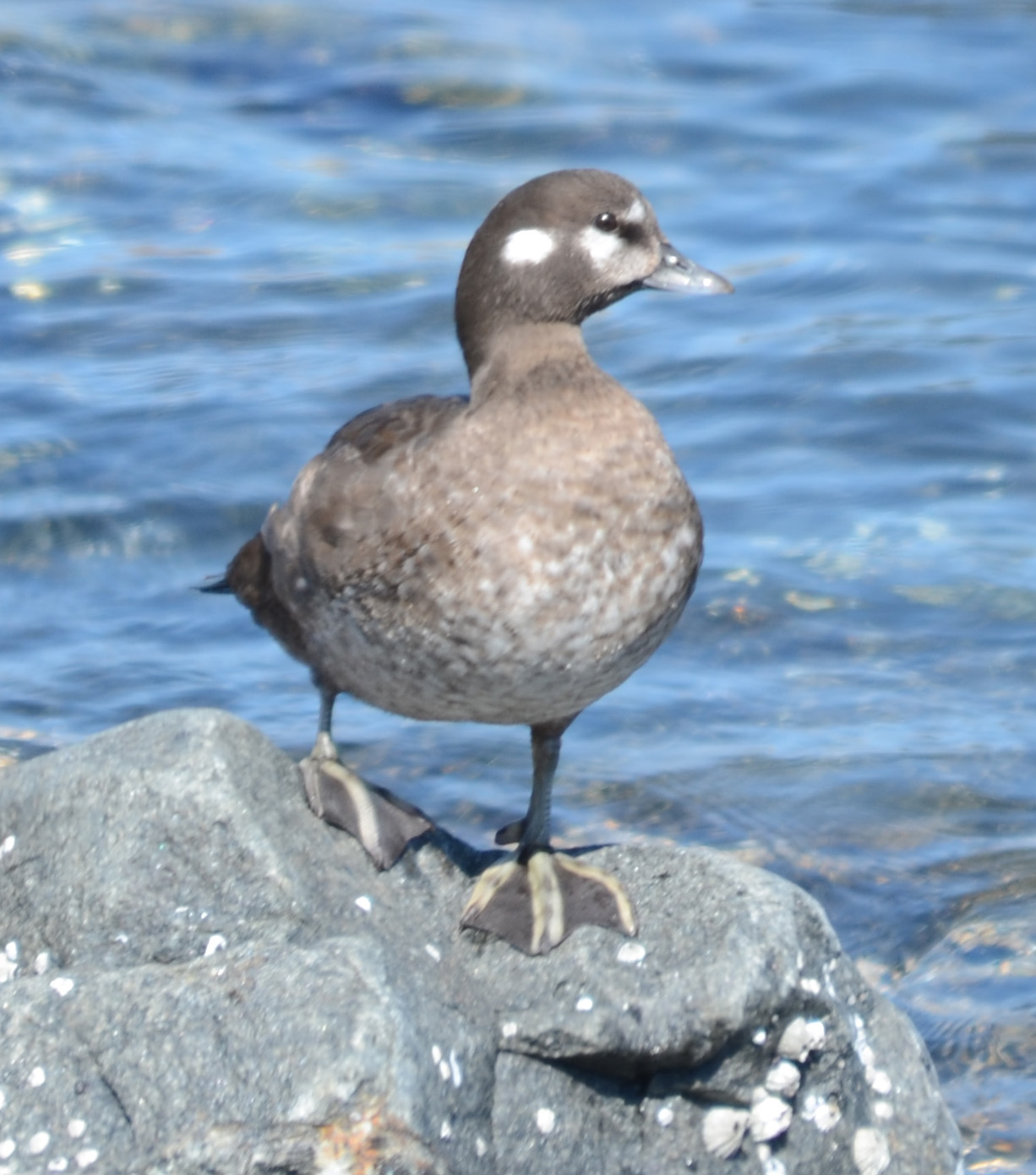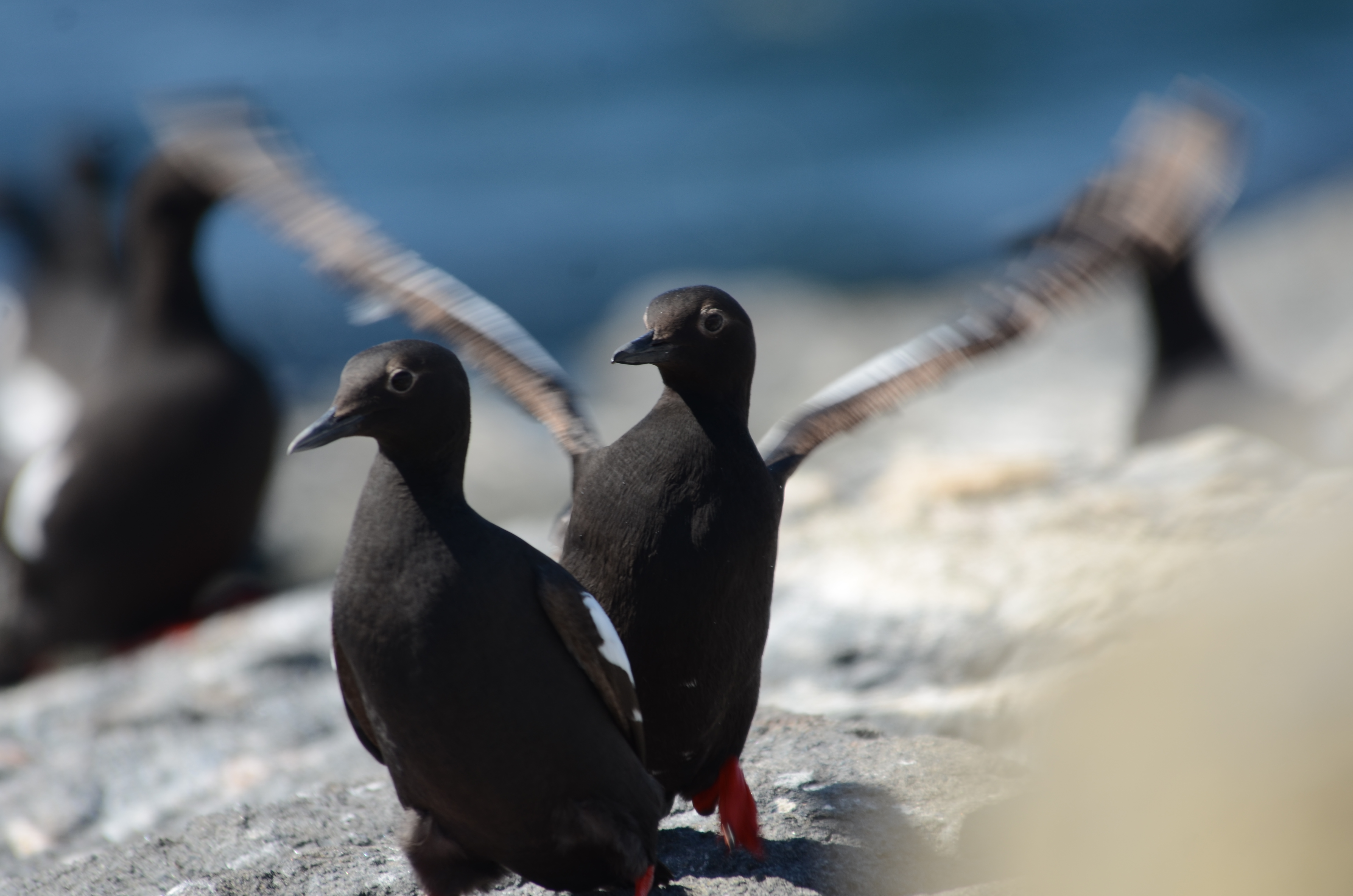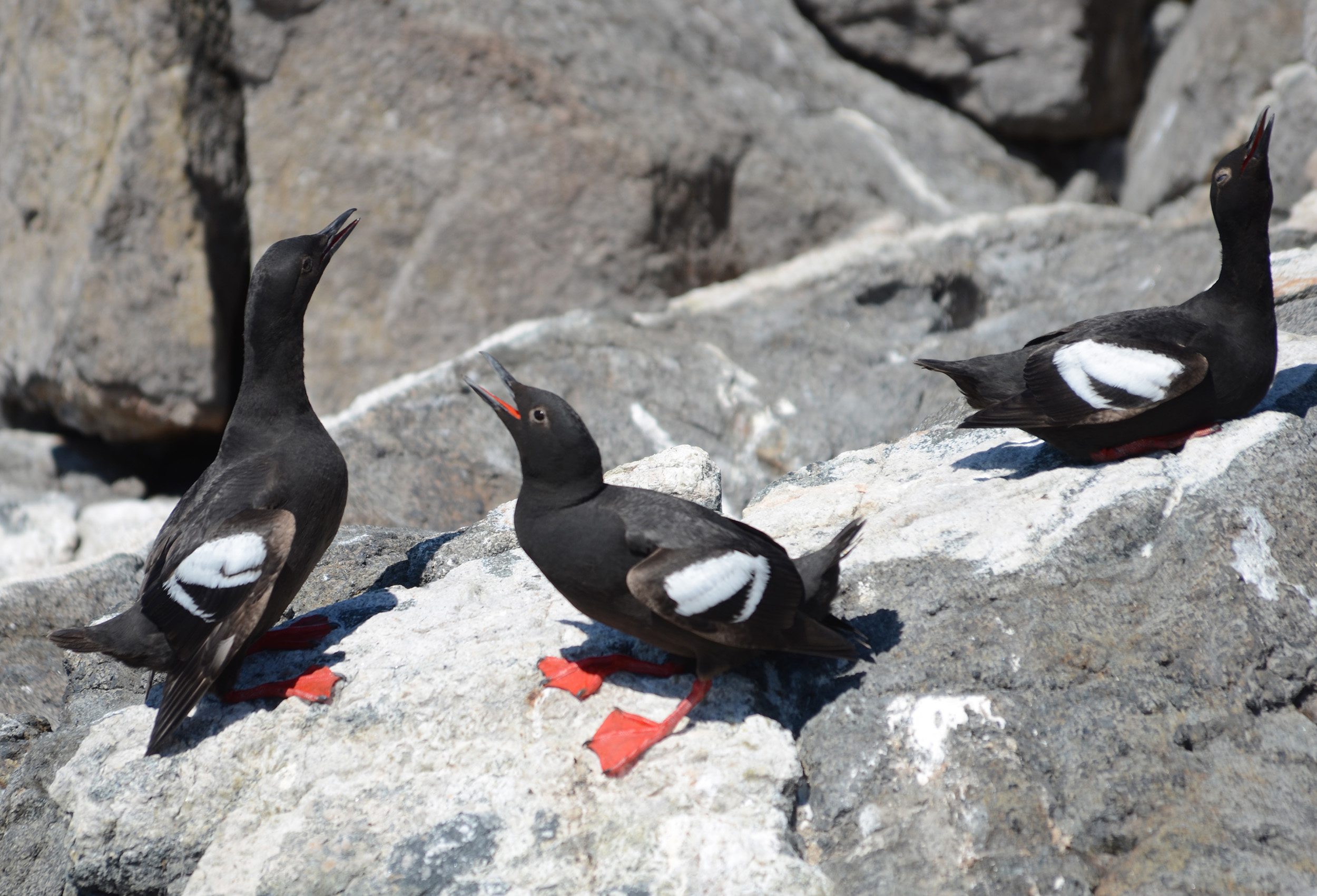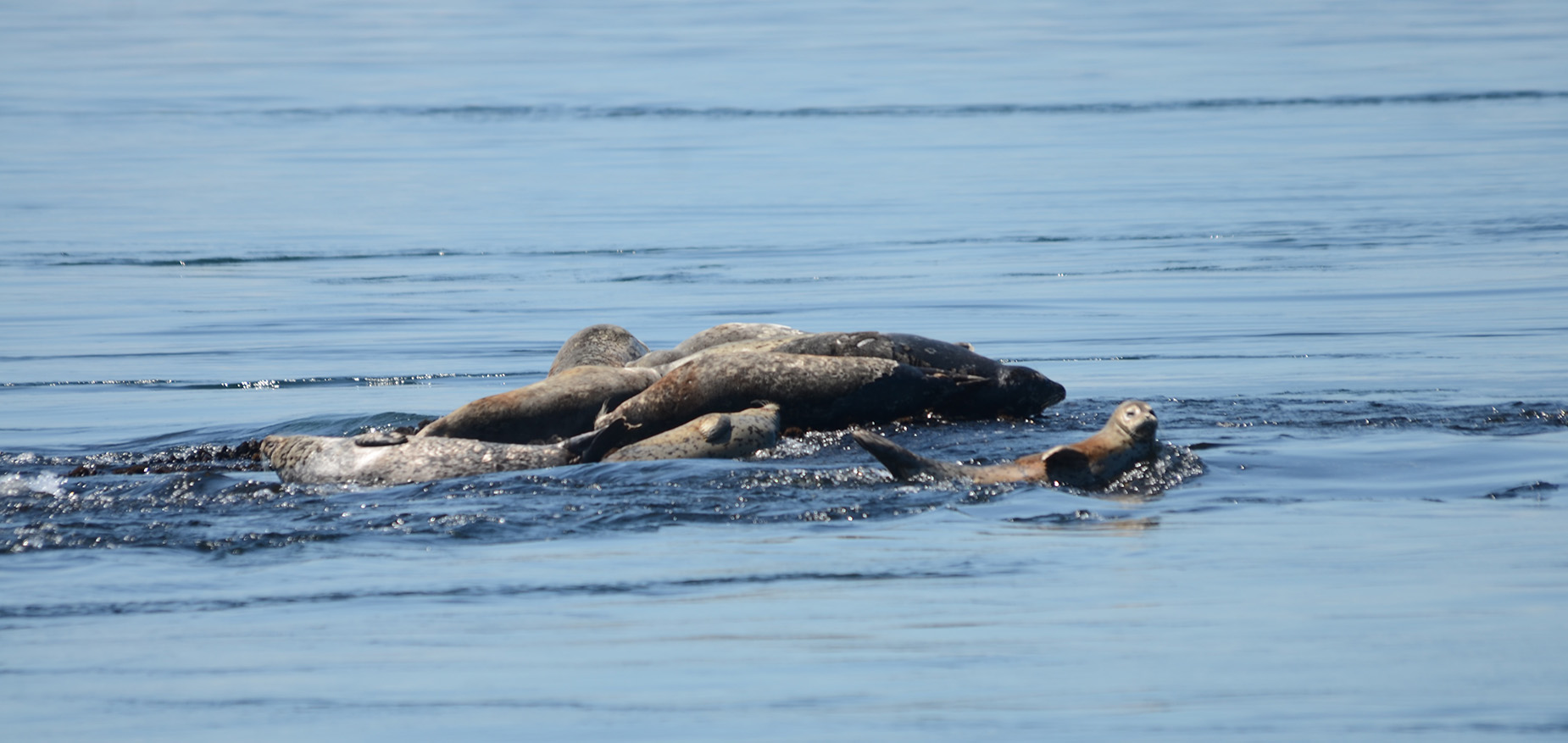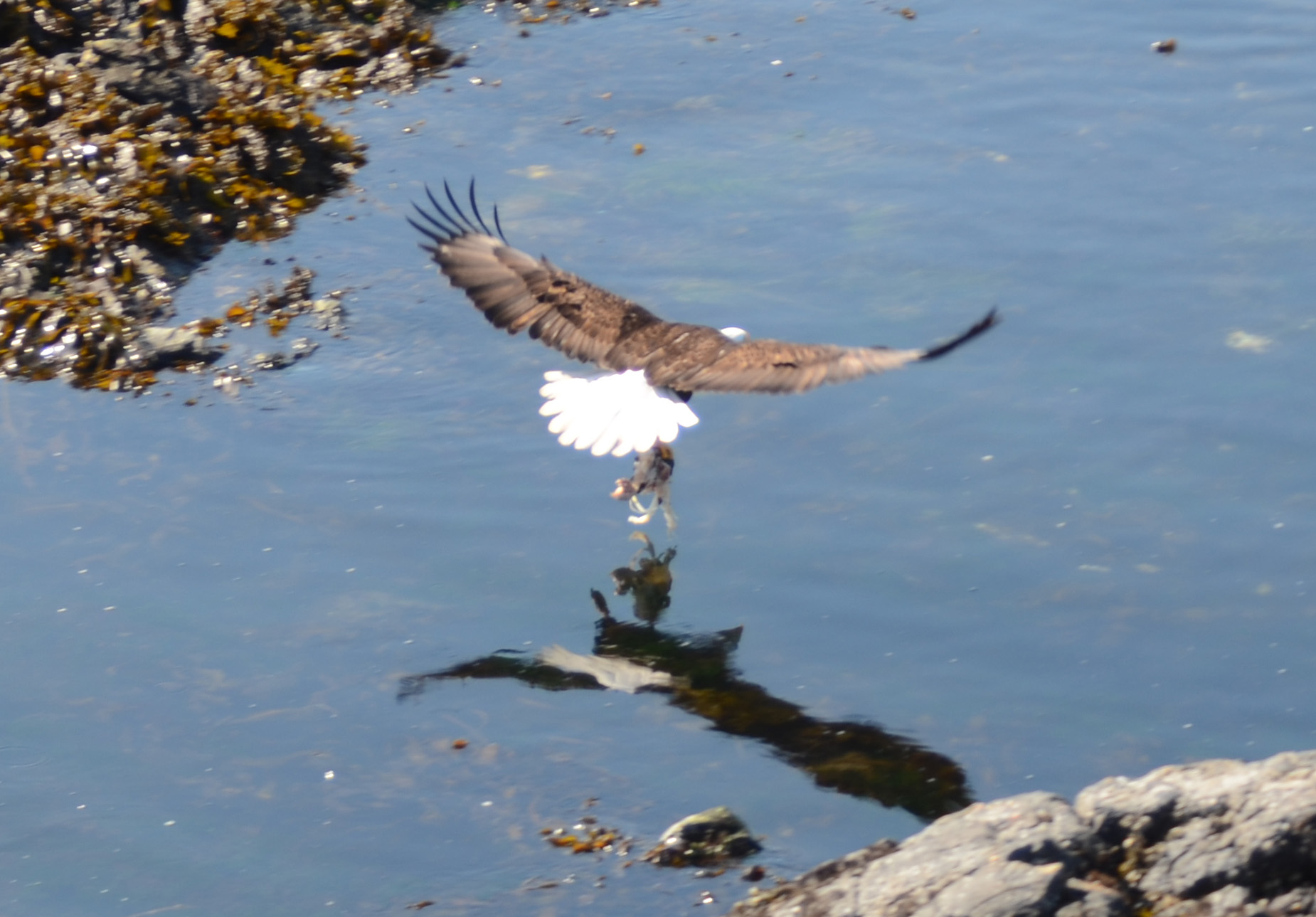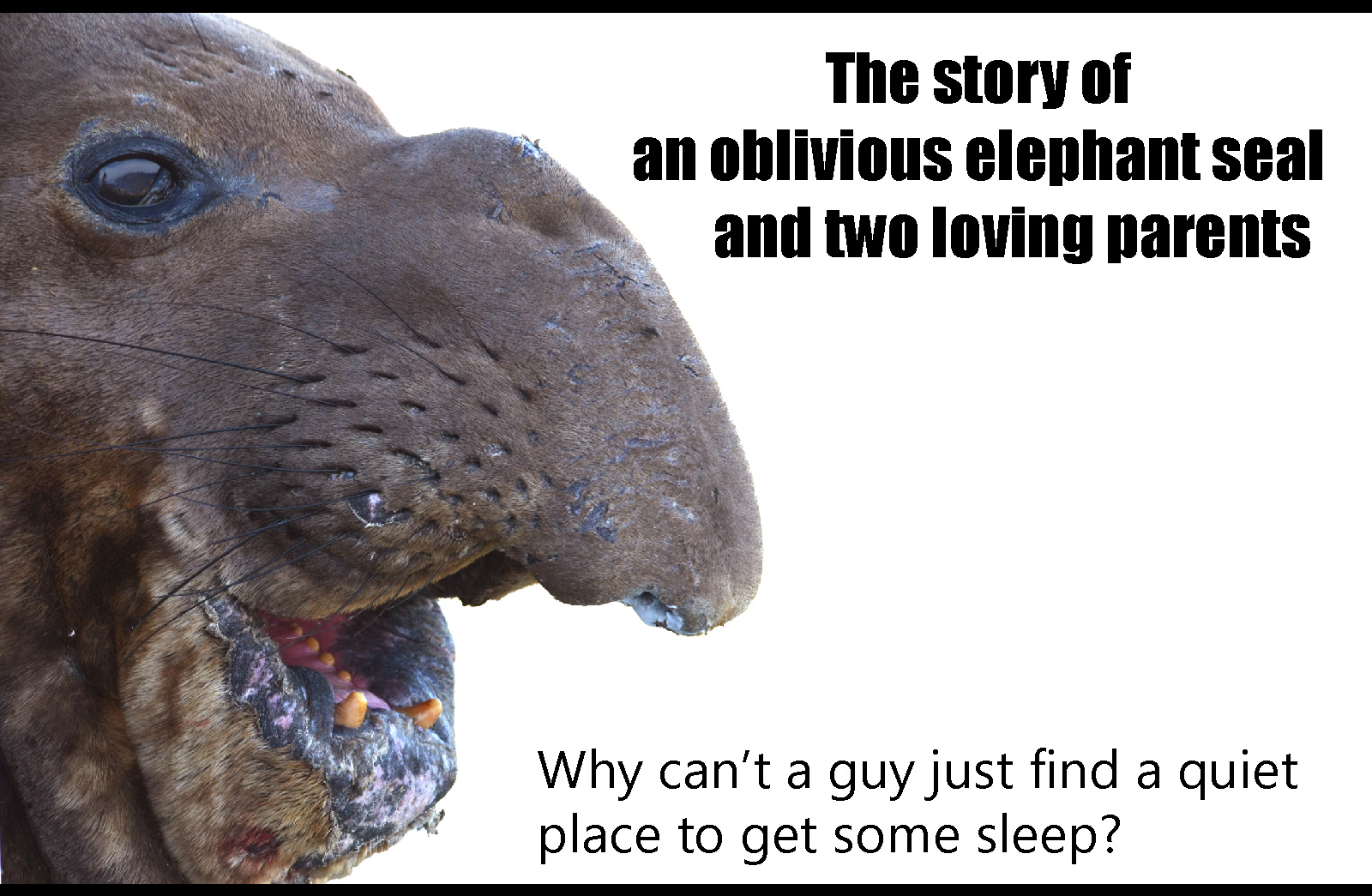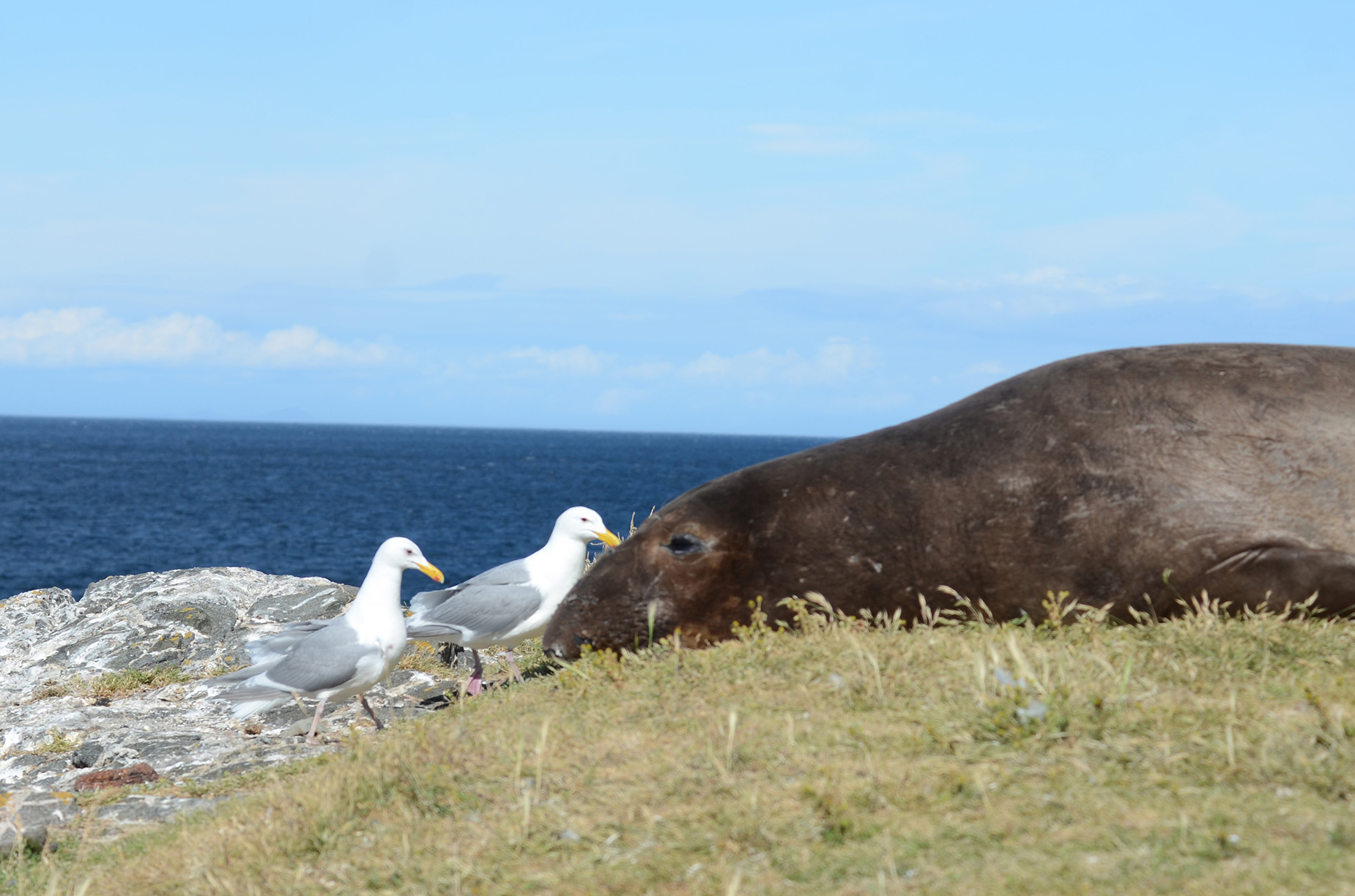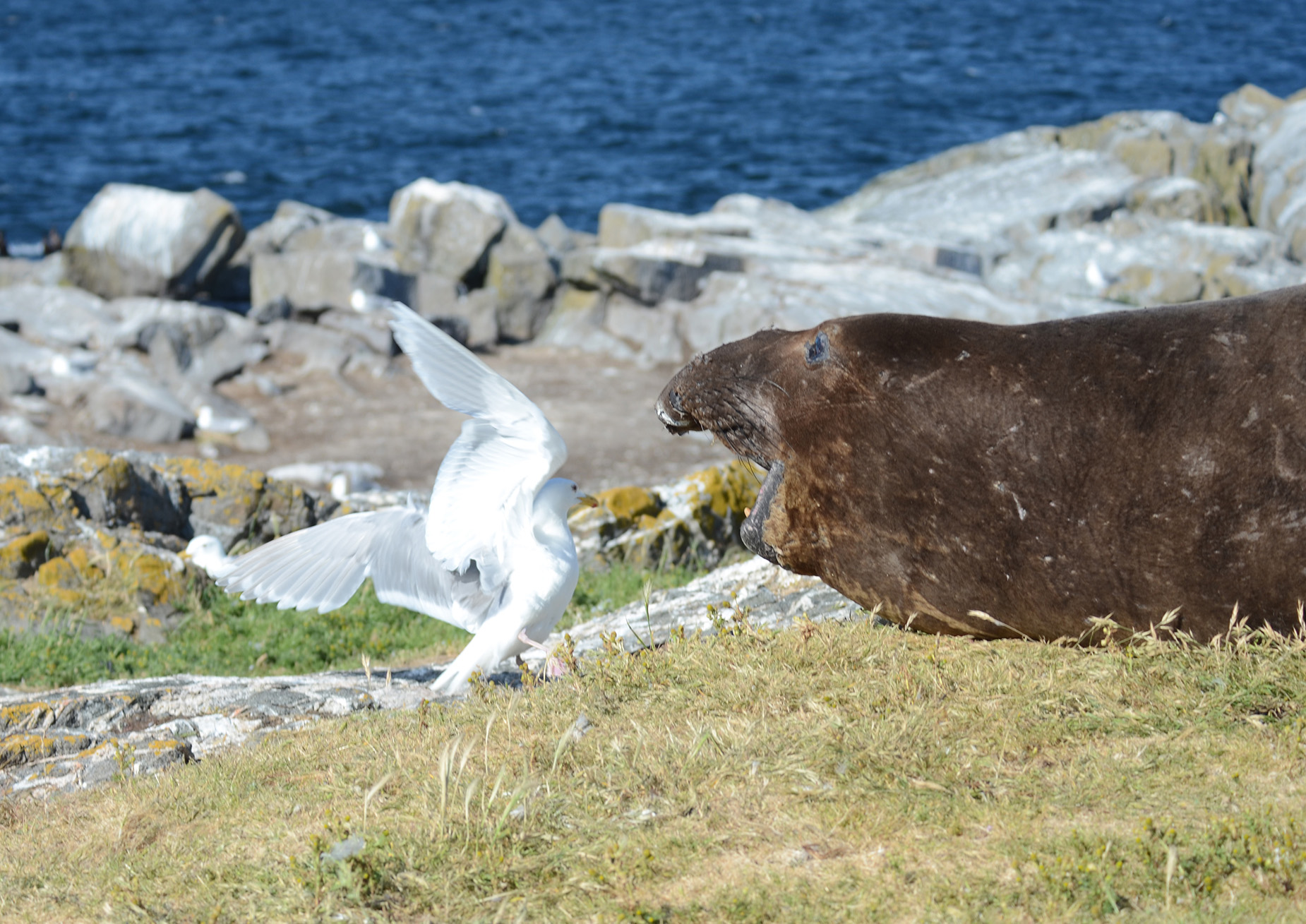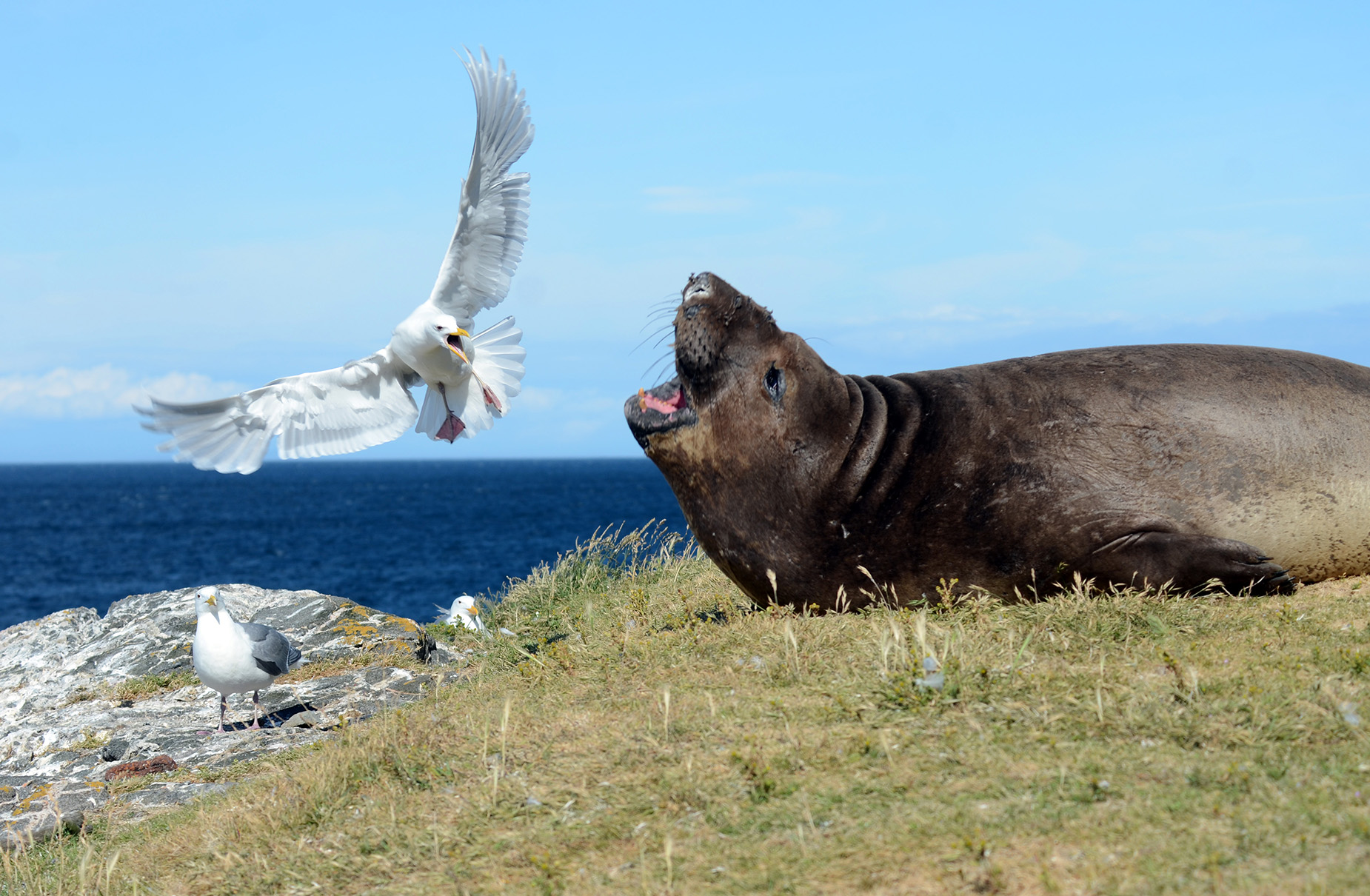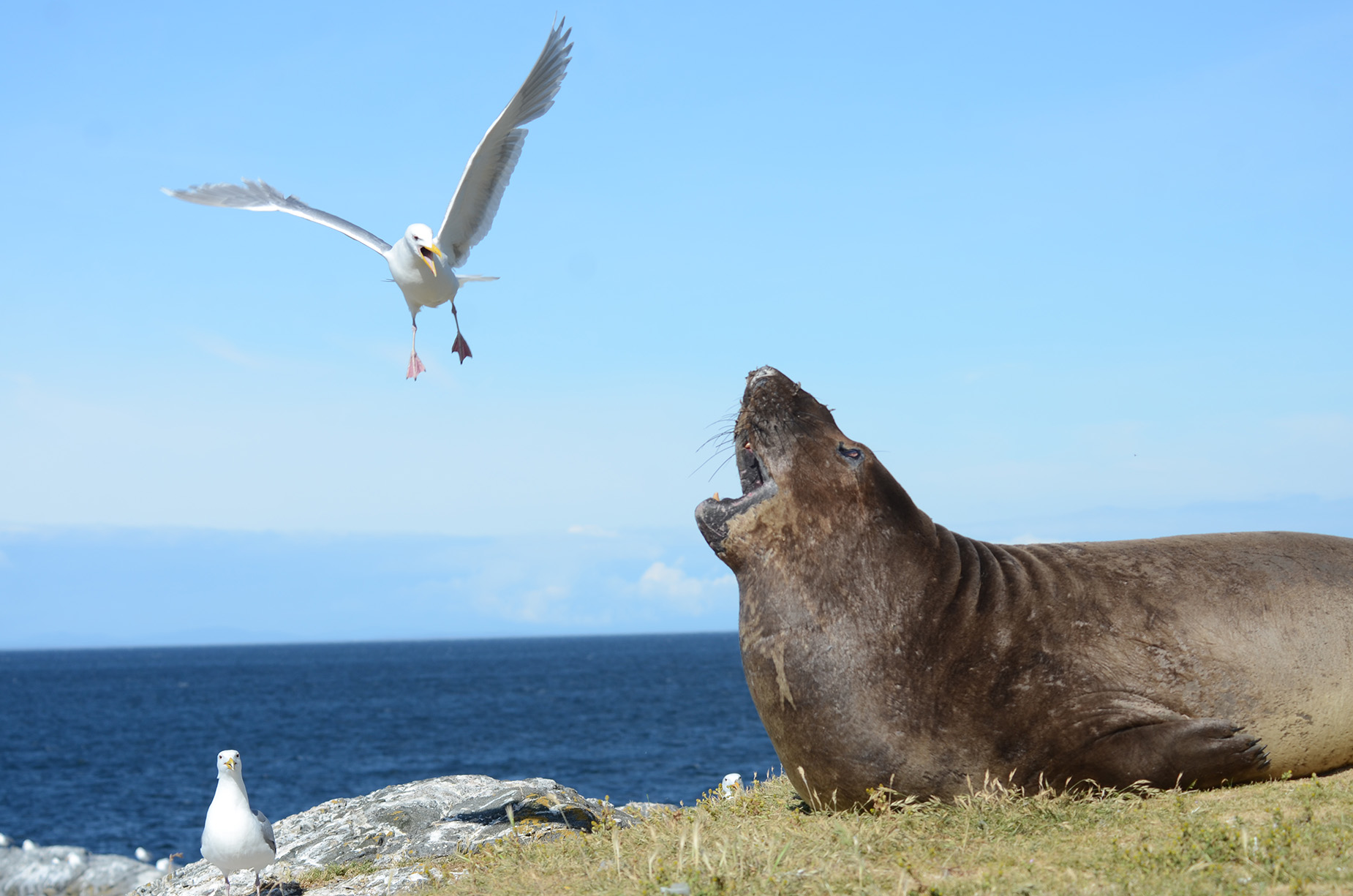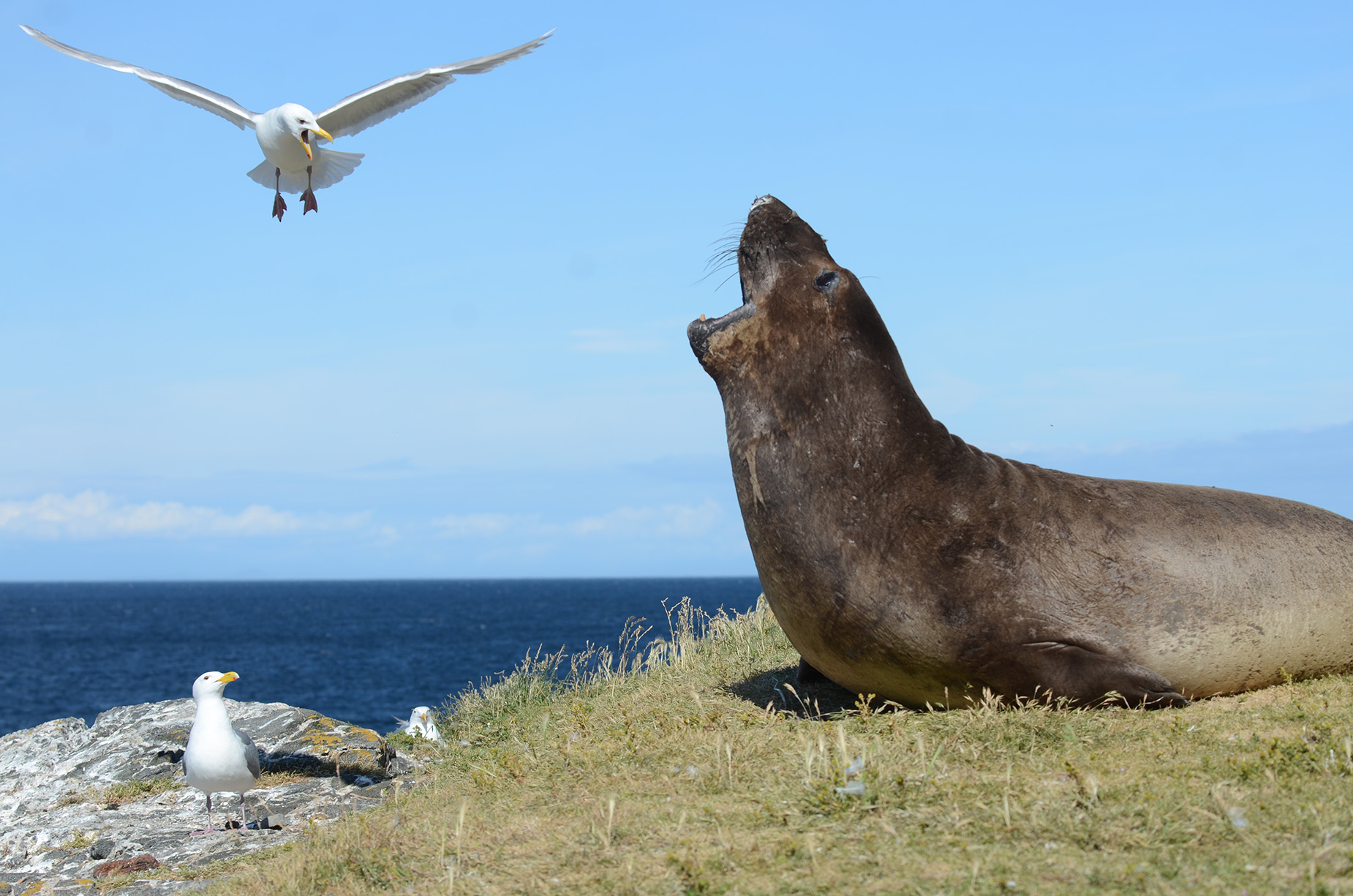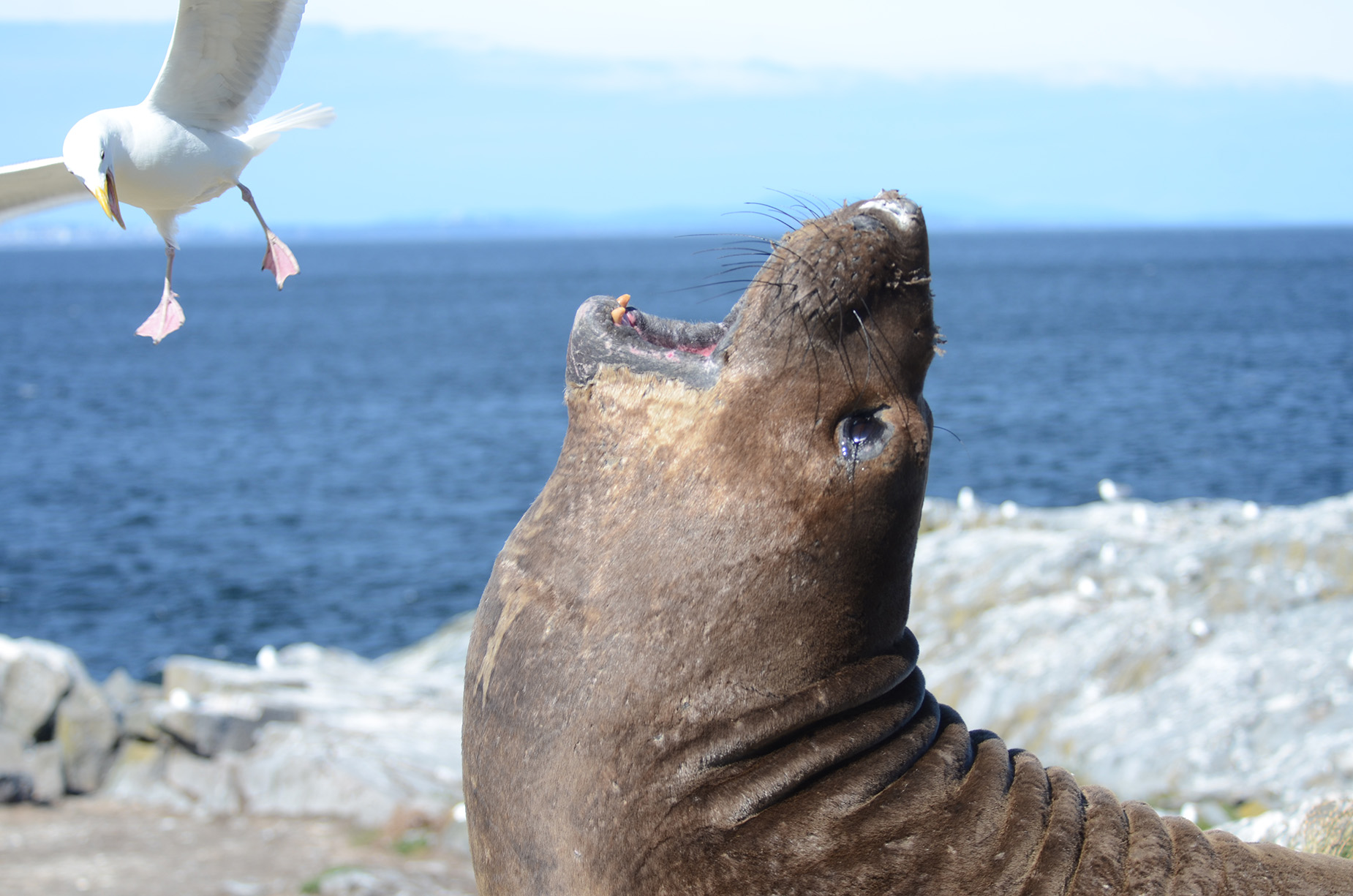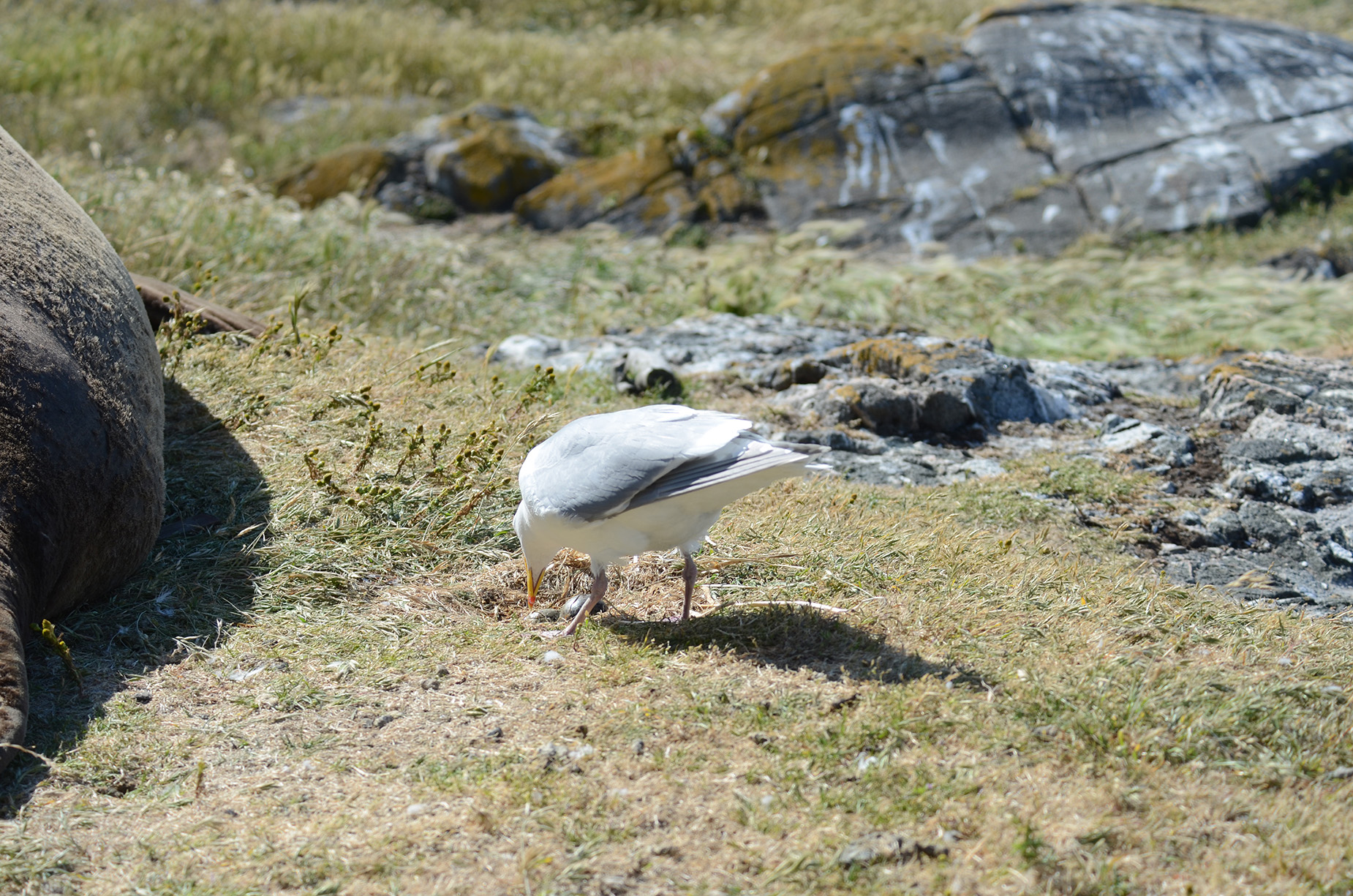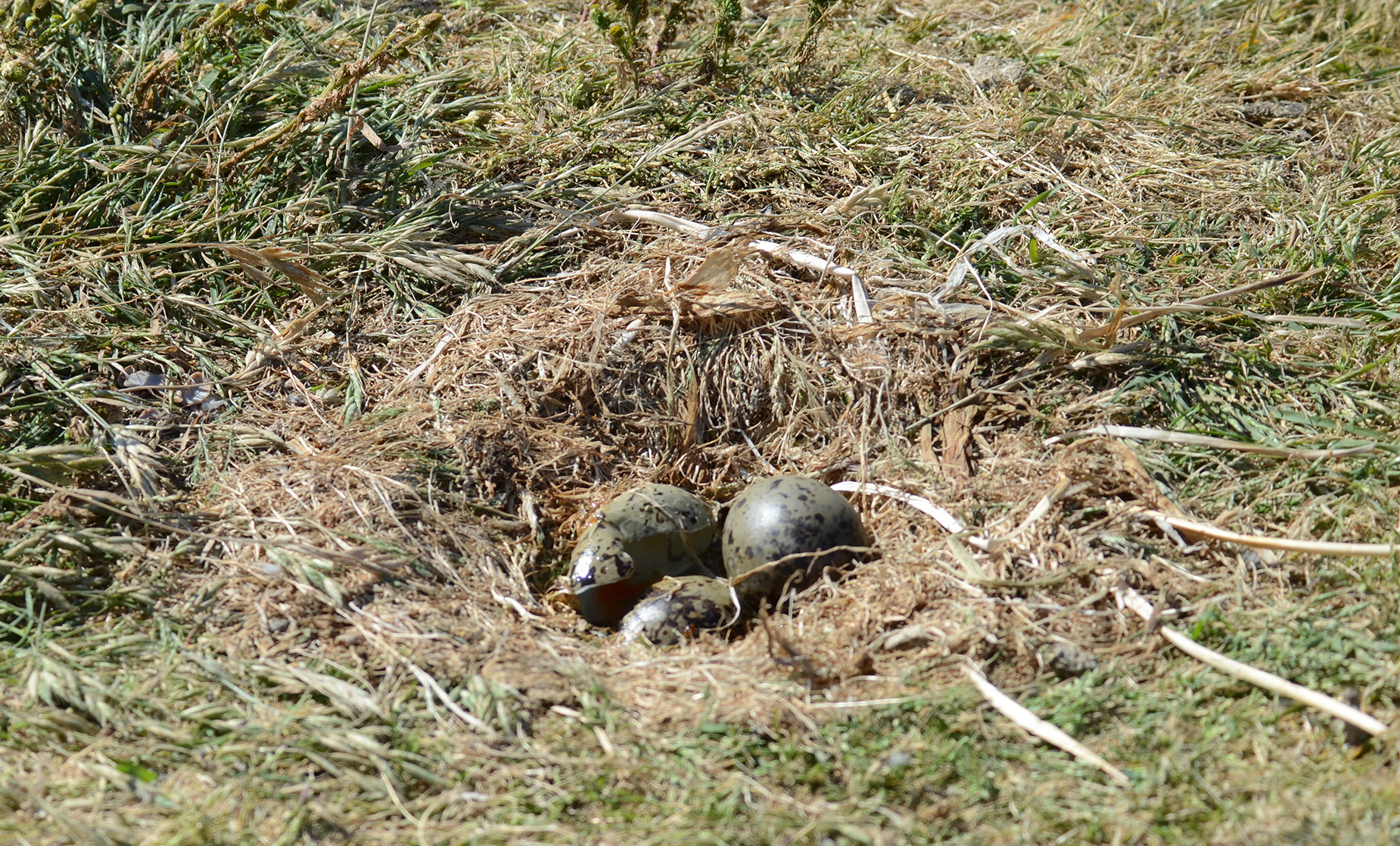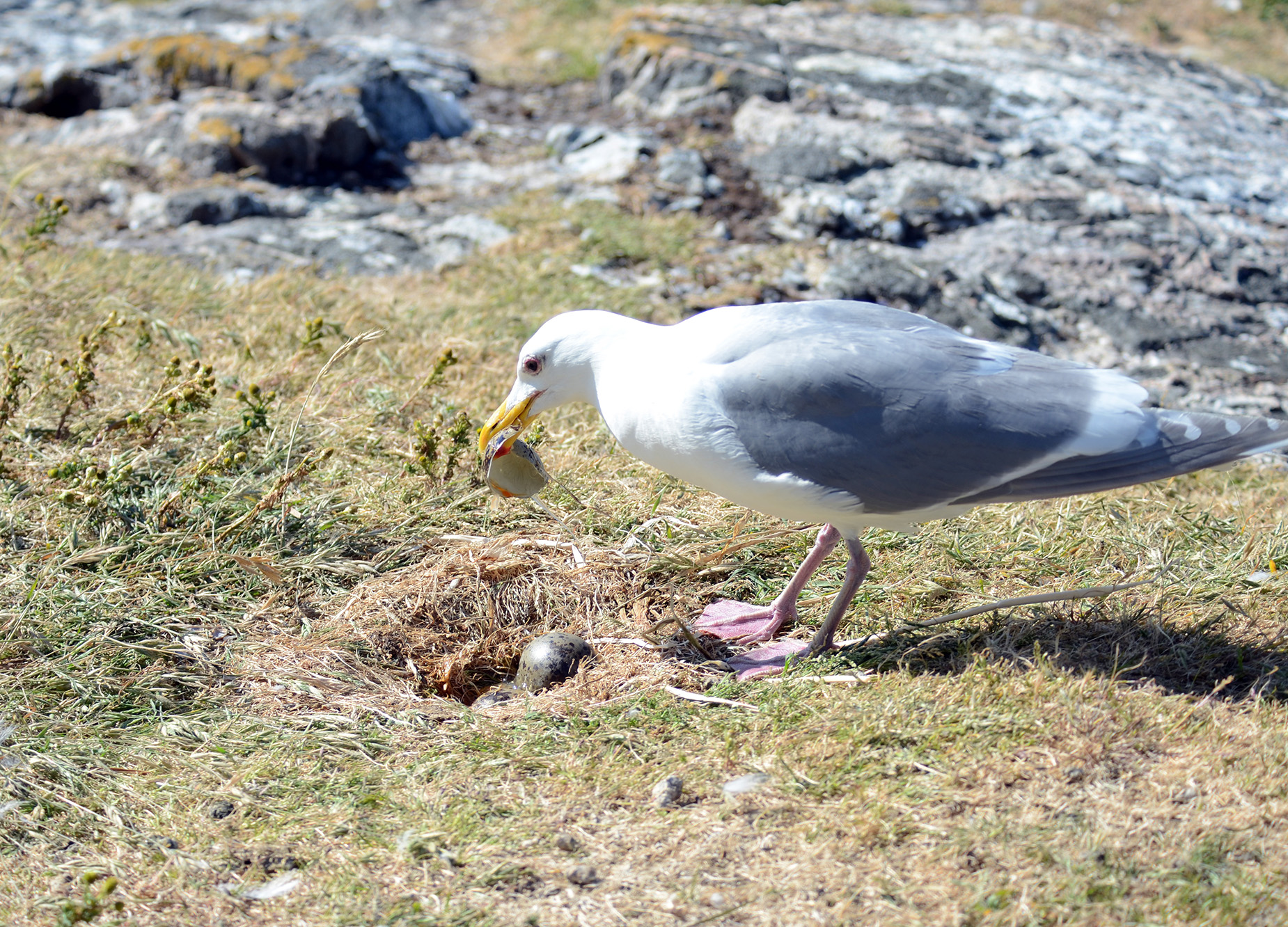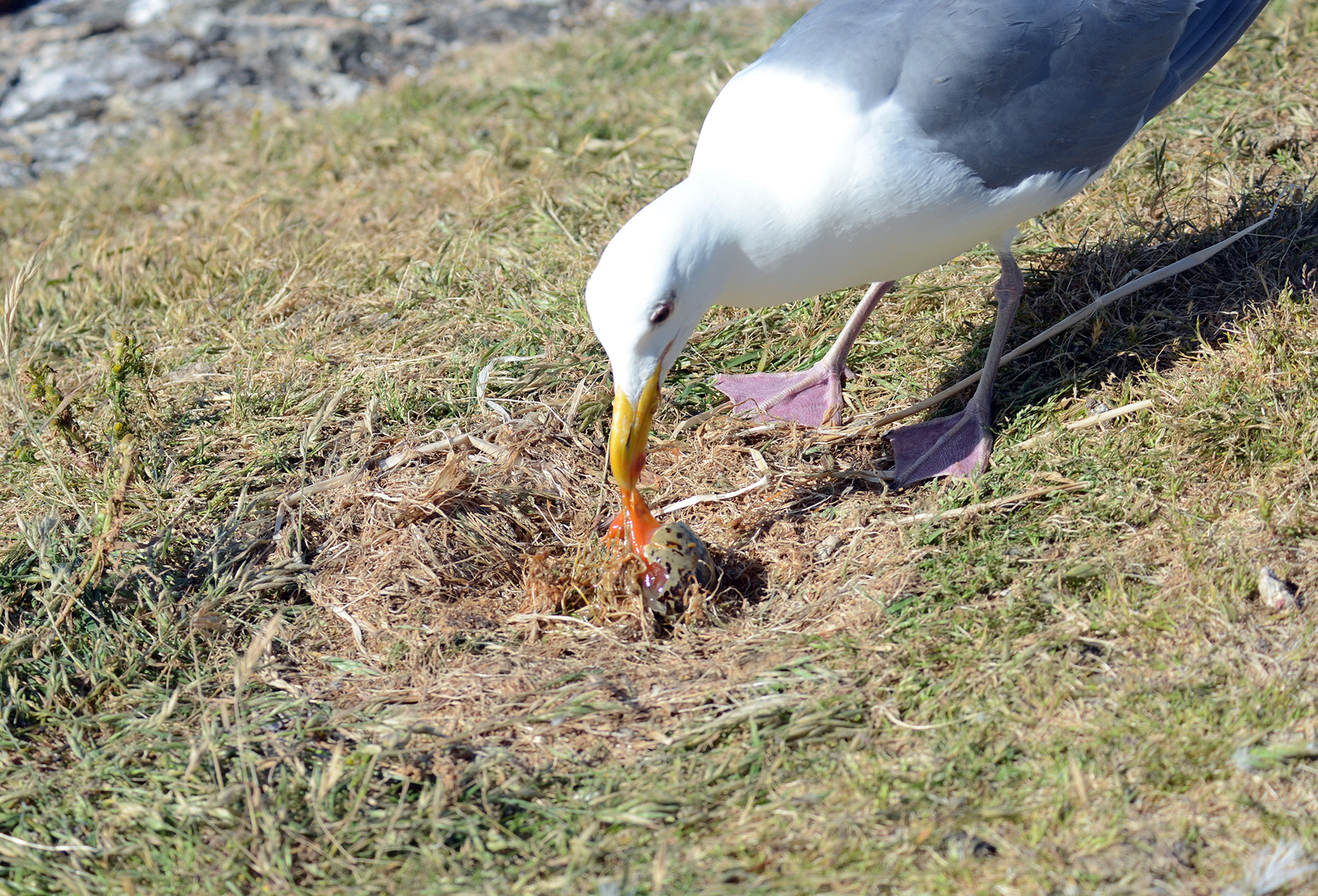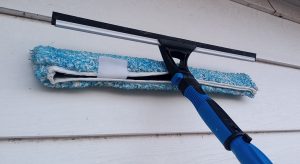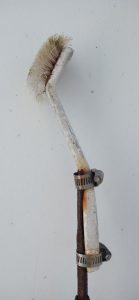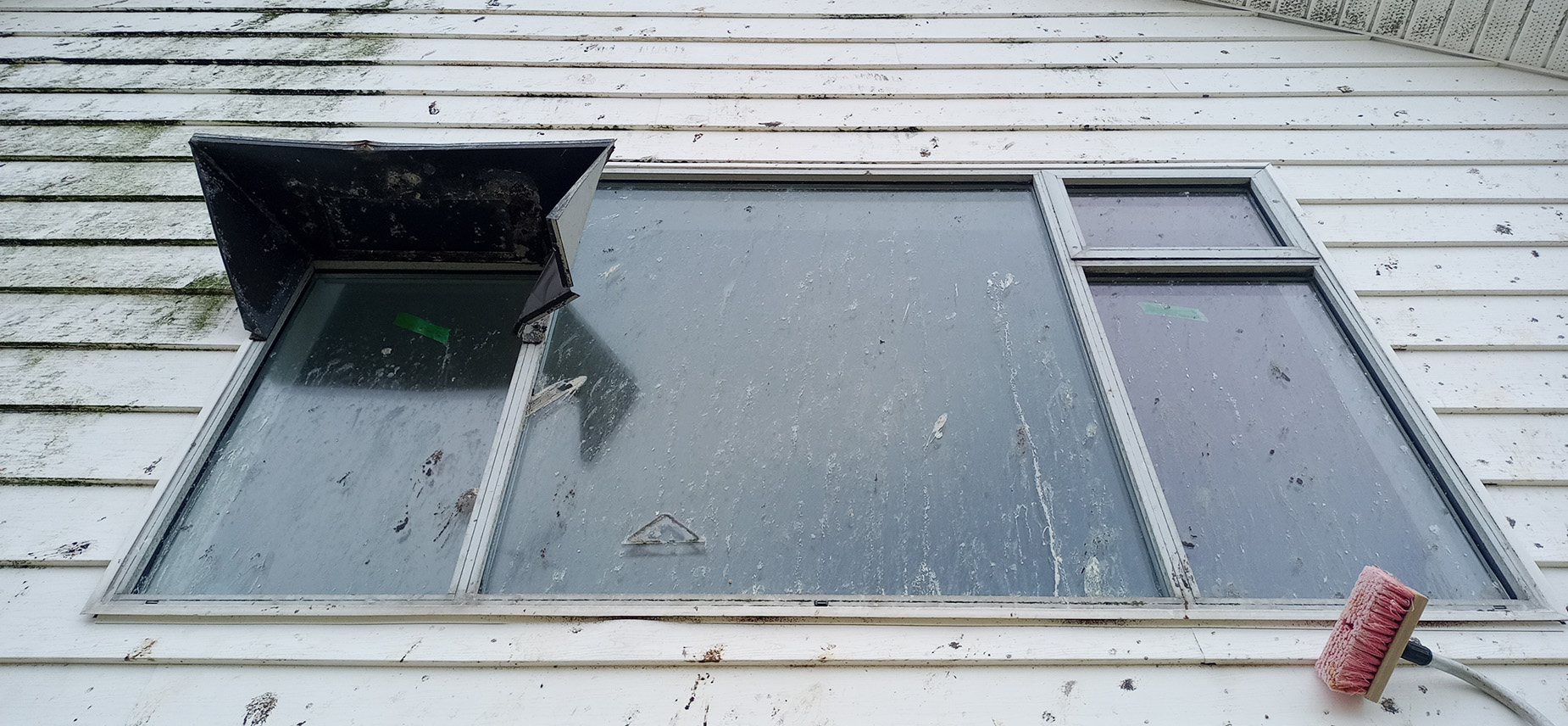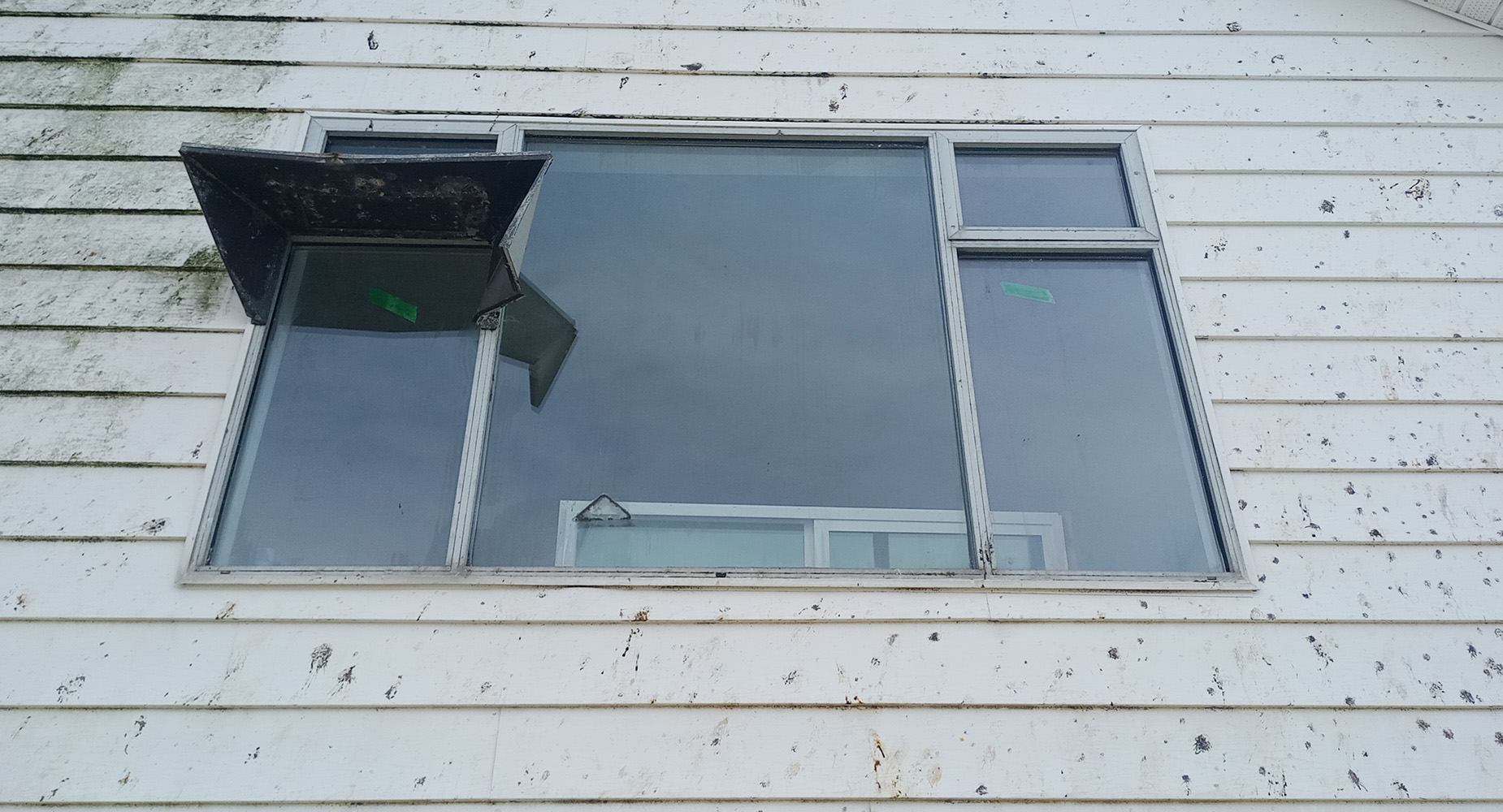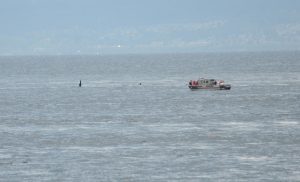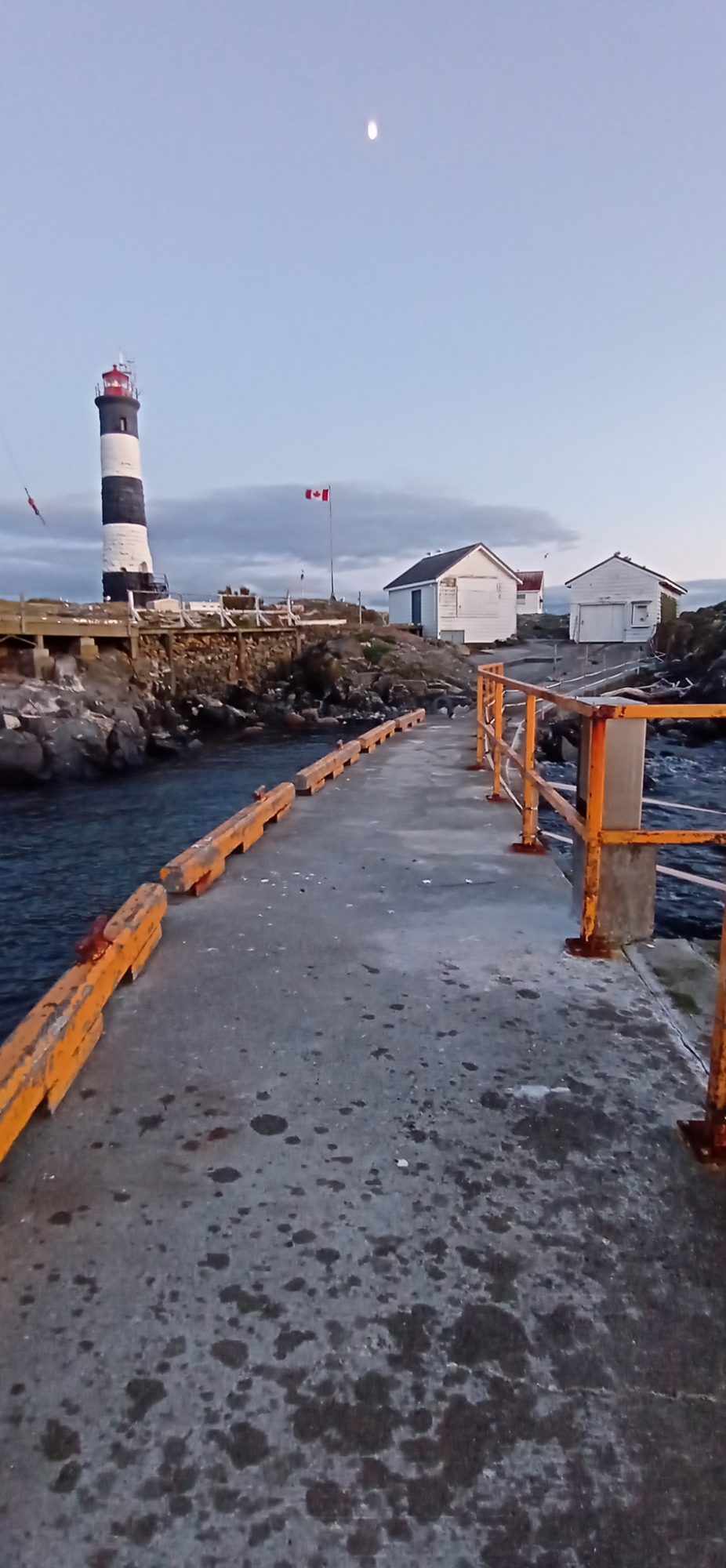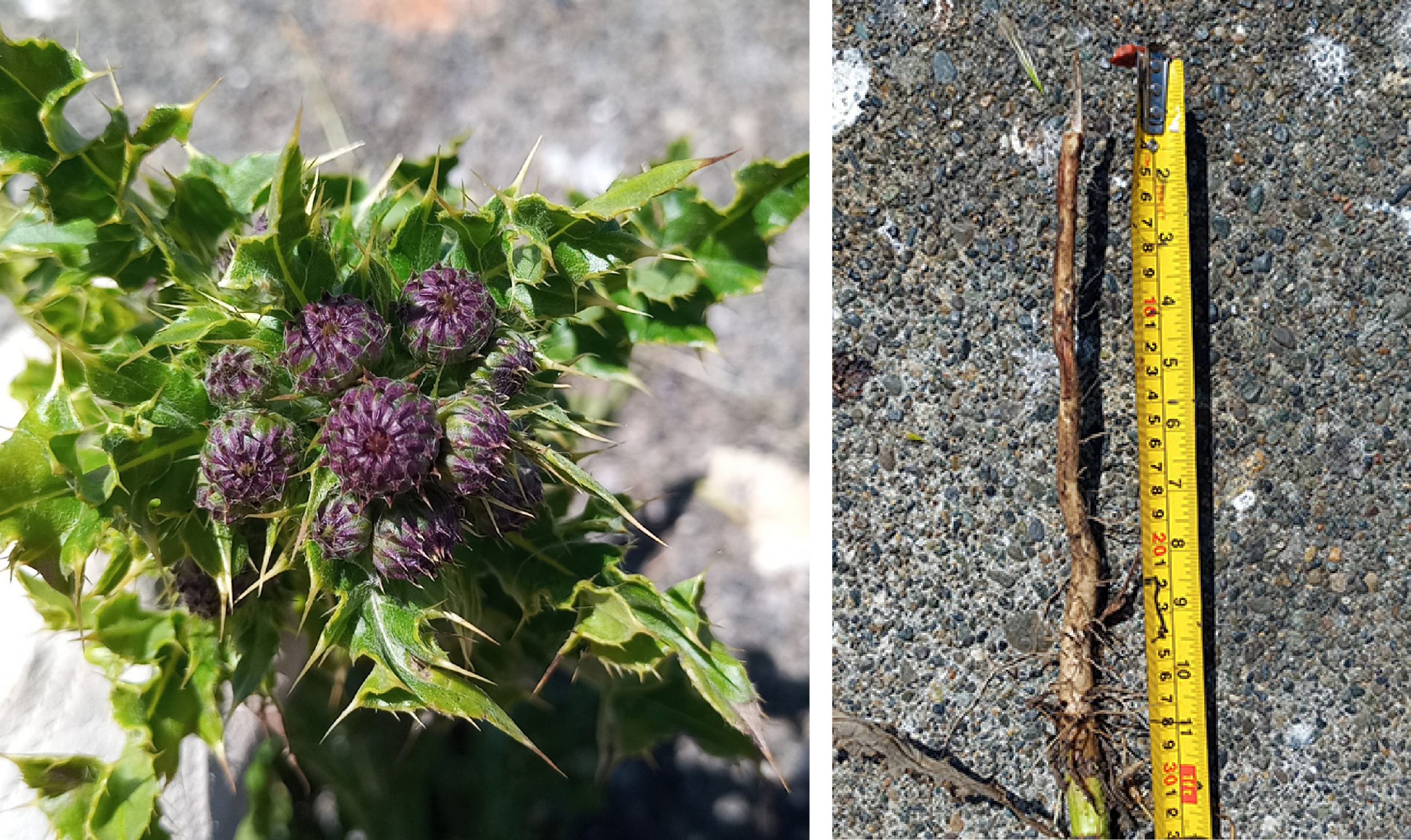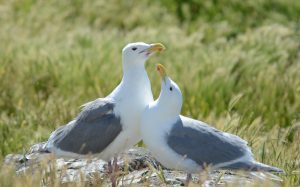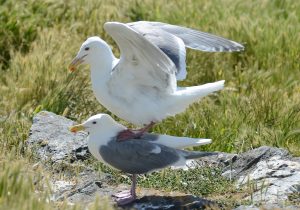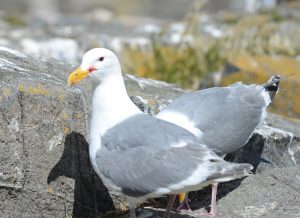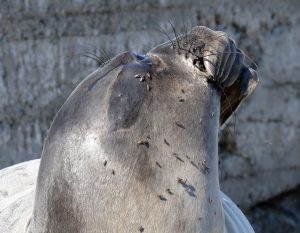 An elephant seal moving on land is anything but graceful. Their rear flippers are not useful for locomotion on land. They use their front flippers to propel themselves forward on their bellies. Their forelimbs or front flippers however, are capable of precise, controlled movements, perfect for getting that itchy spot or wiping away the flies.
An elephant seal moving on land is anything but graceful. Their rear flippers are not useful for locomotion on land. They use their front flippers to propel themselves forward on their bellies. Their forelimbs or front flippers however, are capable of precise, controlled movements, perfect for getting that itchy spot or wiping away the flies.
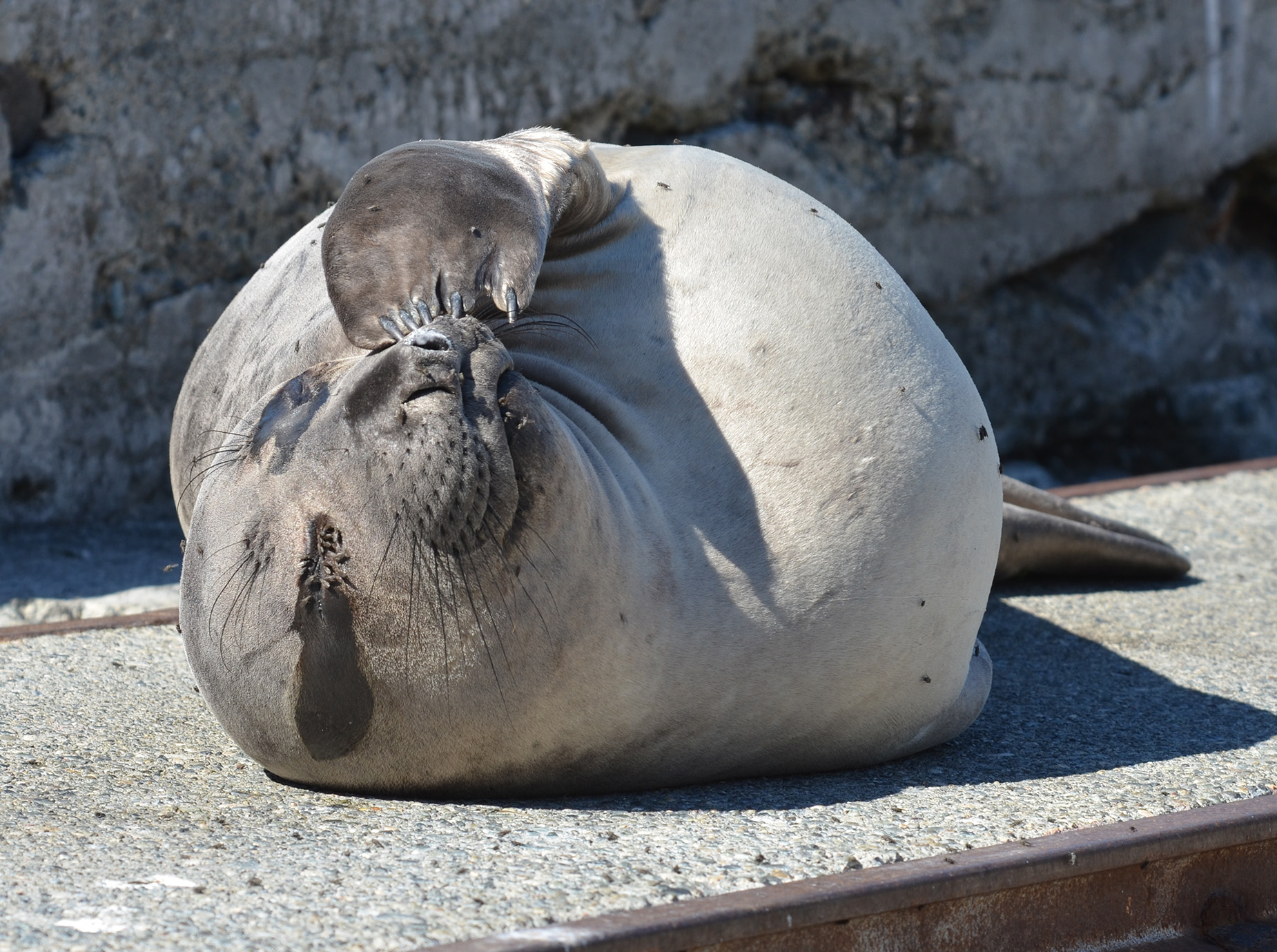
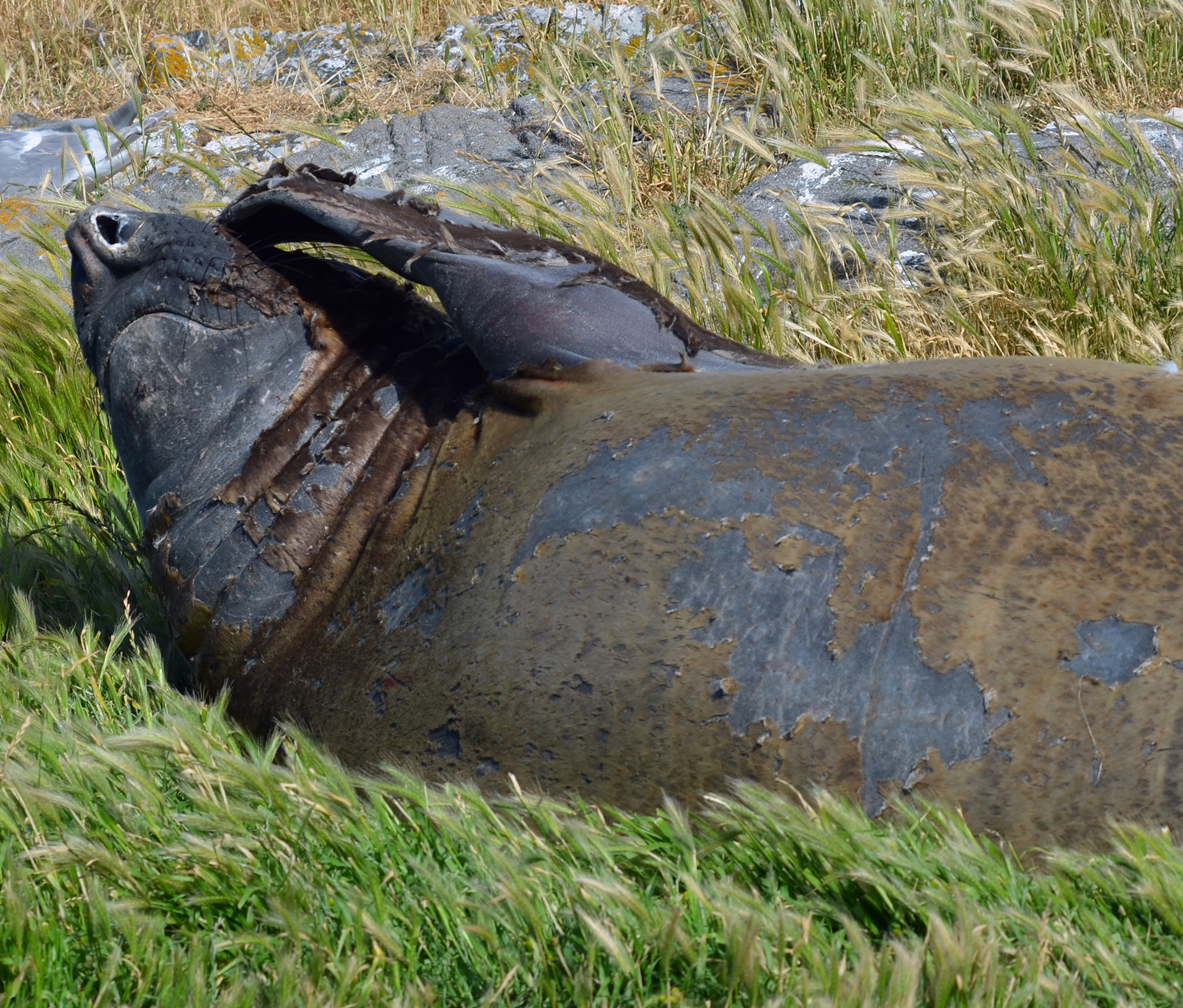
Wildlife notes:
Single eagles visited today. The gulls would really have an easier time if they just worked together in both scaring off the eagles and dealing with the steamroller elephant seal. While all the gulls are flying about and screaming bloody murder, only one brave gull chased the eagle on two trips around the Great Race and the surrounding islands. The male elephant seal has lost more hair on his nose, around his eyes and the hair on his body is coming off in patches.
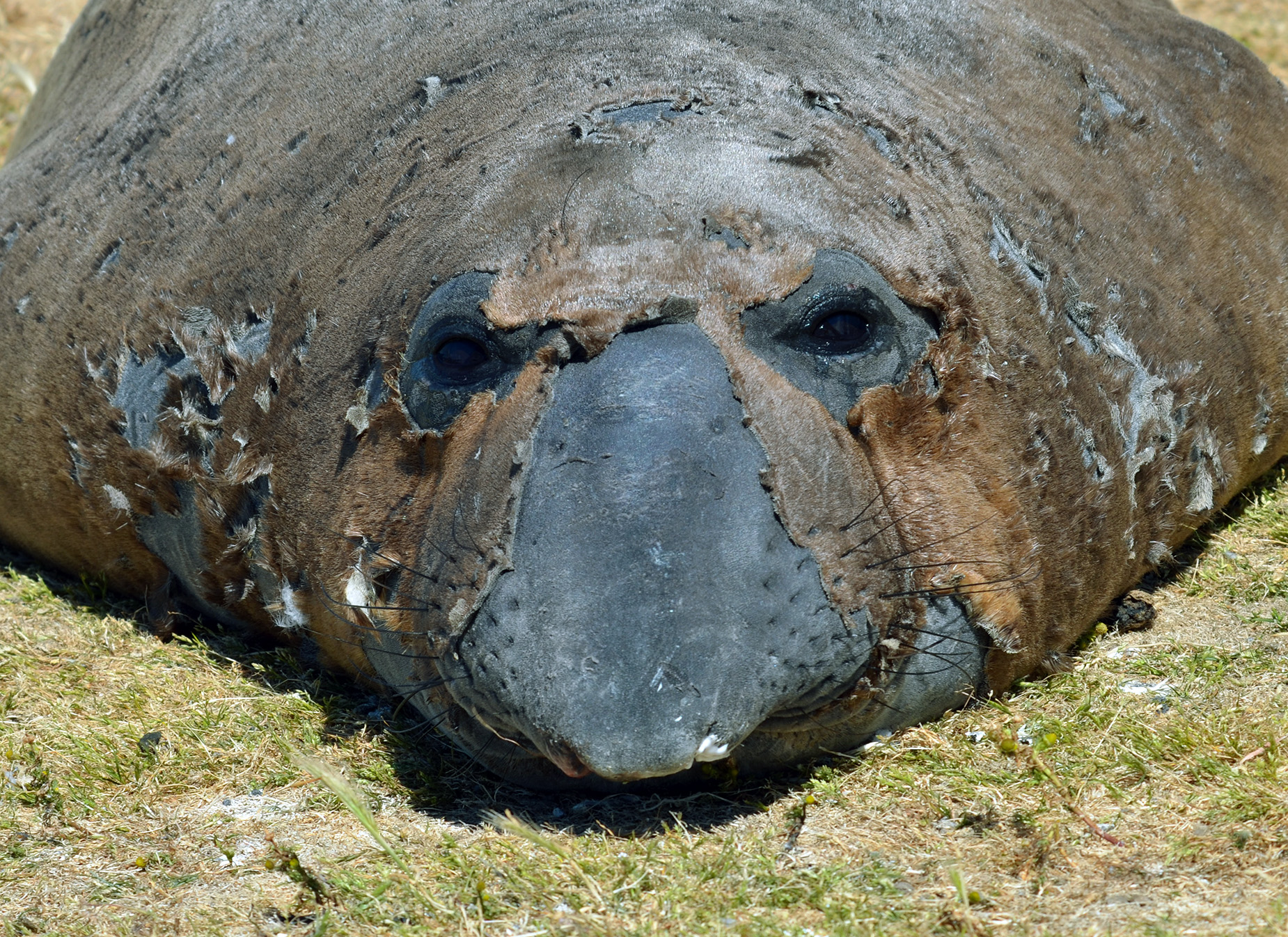
Facility work:
- cleaned solar panels
- thistles
Vessels:
7 Ecotourism boats, 2 private
Weather:
Foggy morning, temperature 10 degrees, winds WSW 10. Daytime high of 12 degrees, winds steady 8-15 knots from WSW or W.

